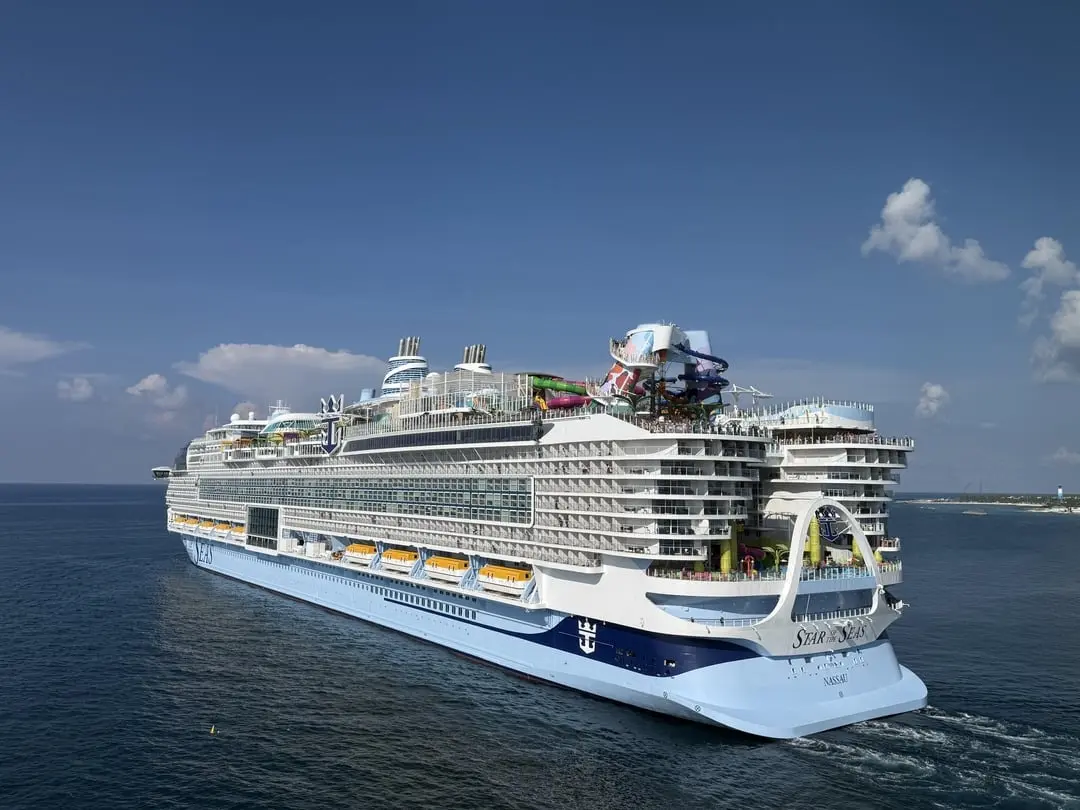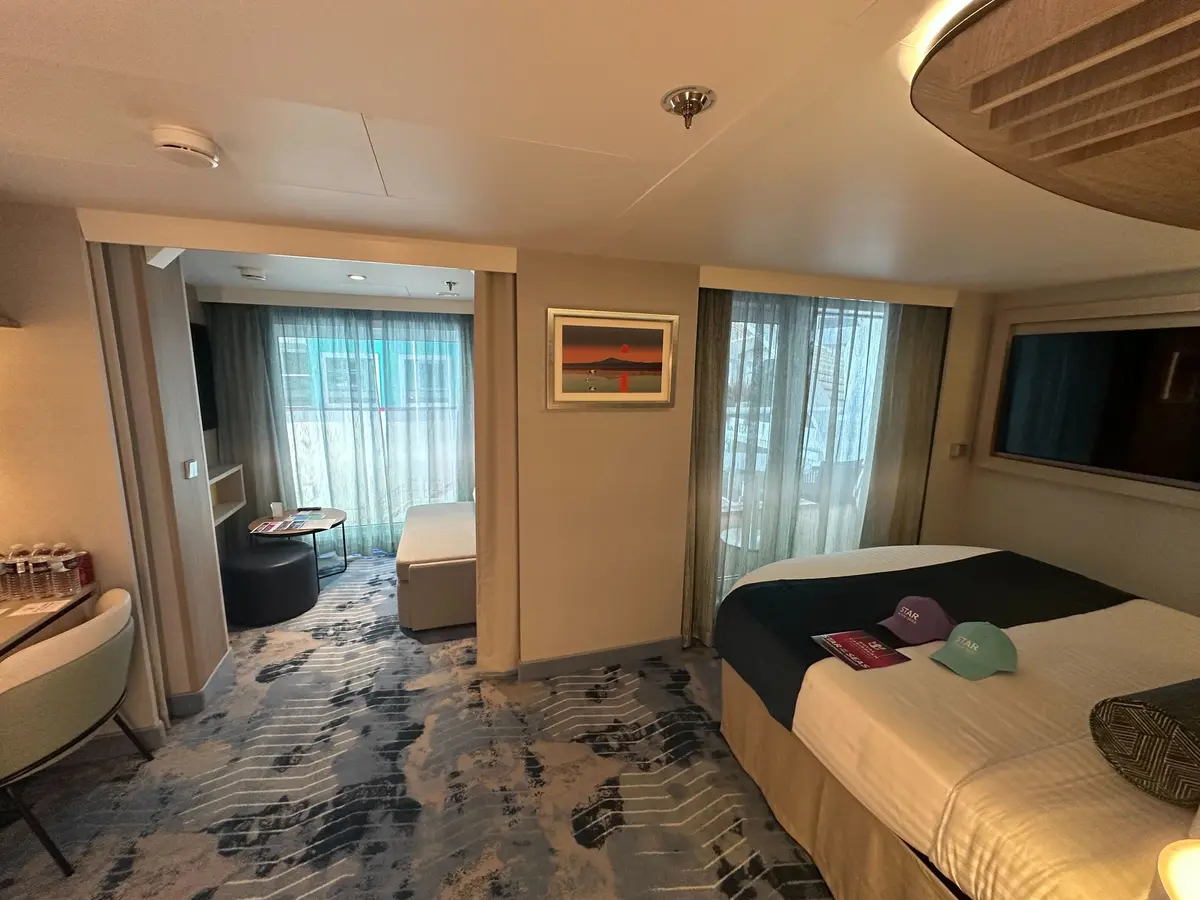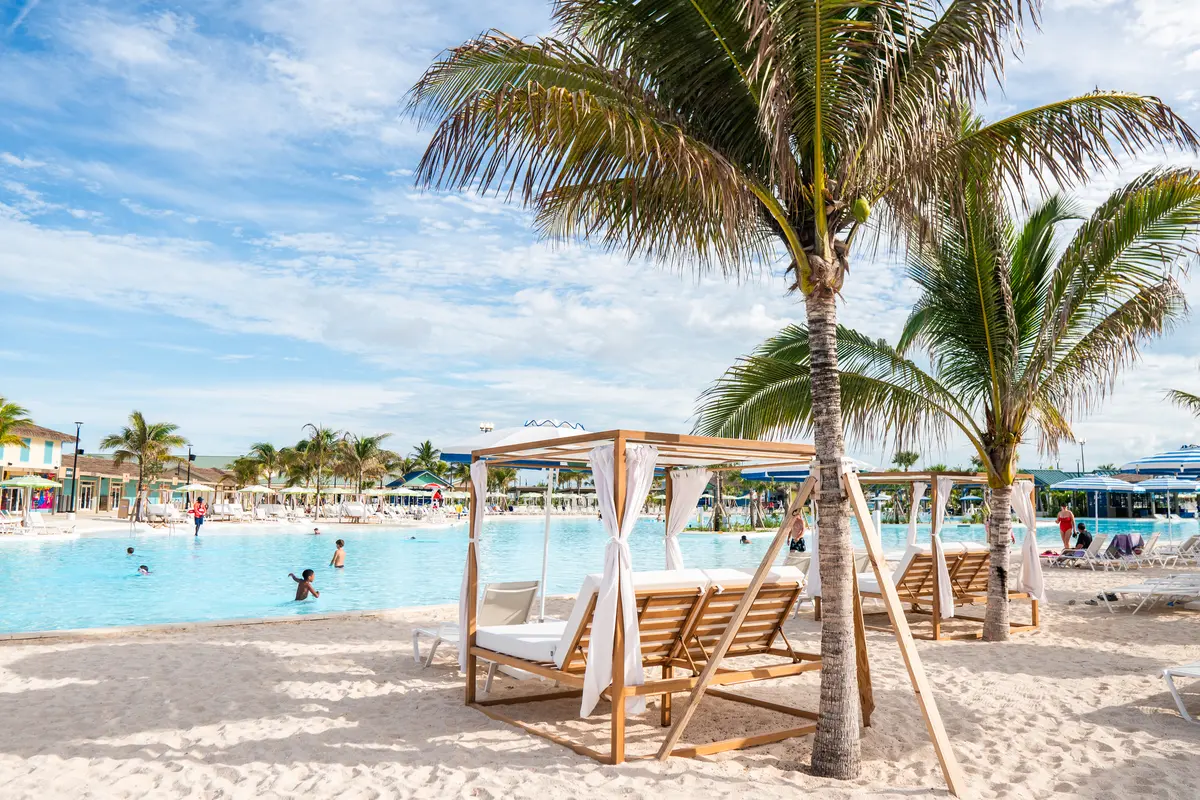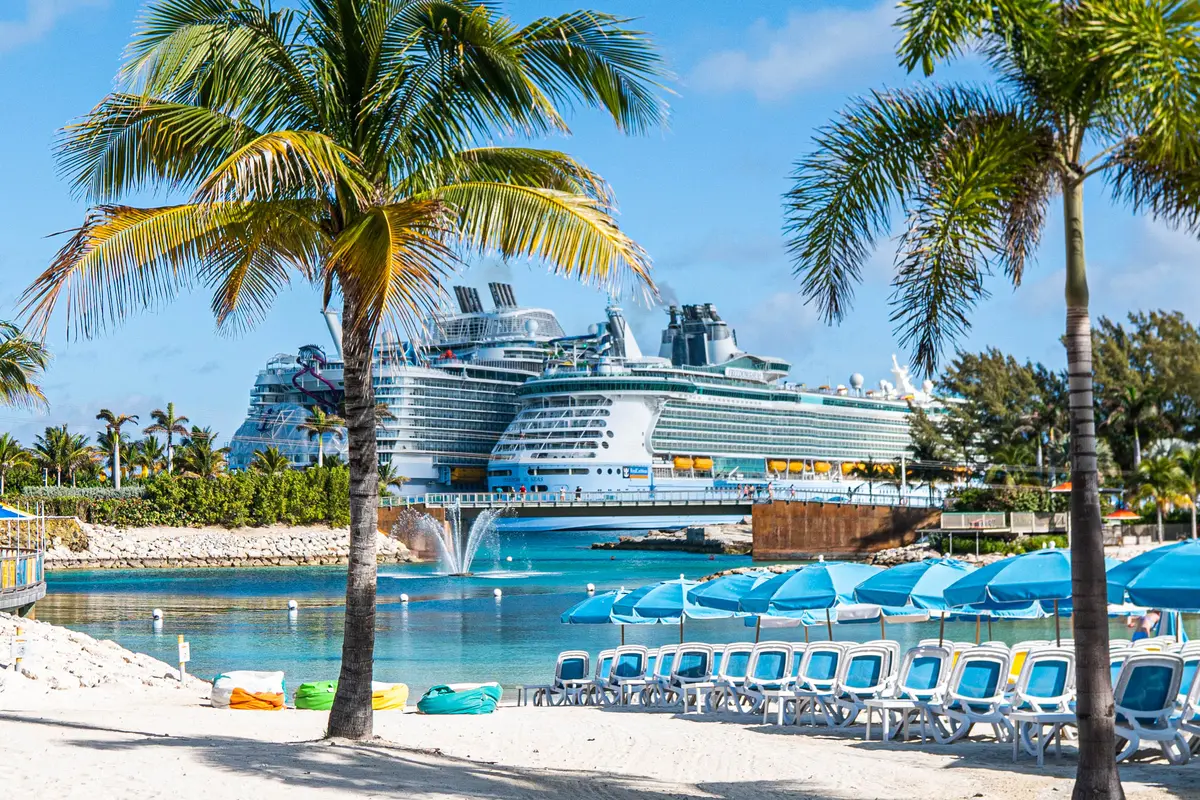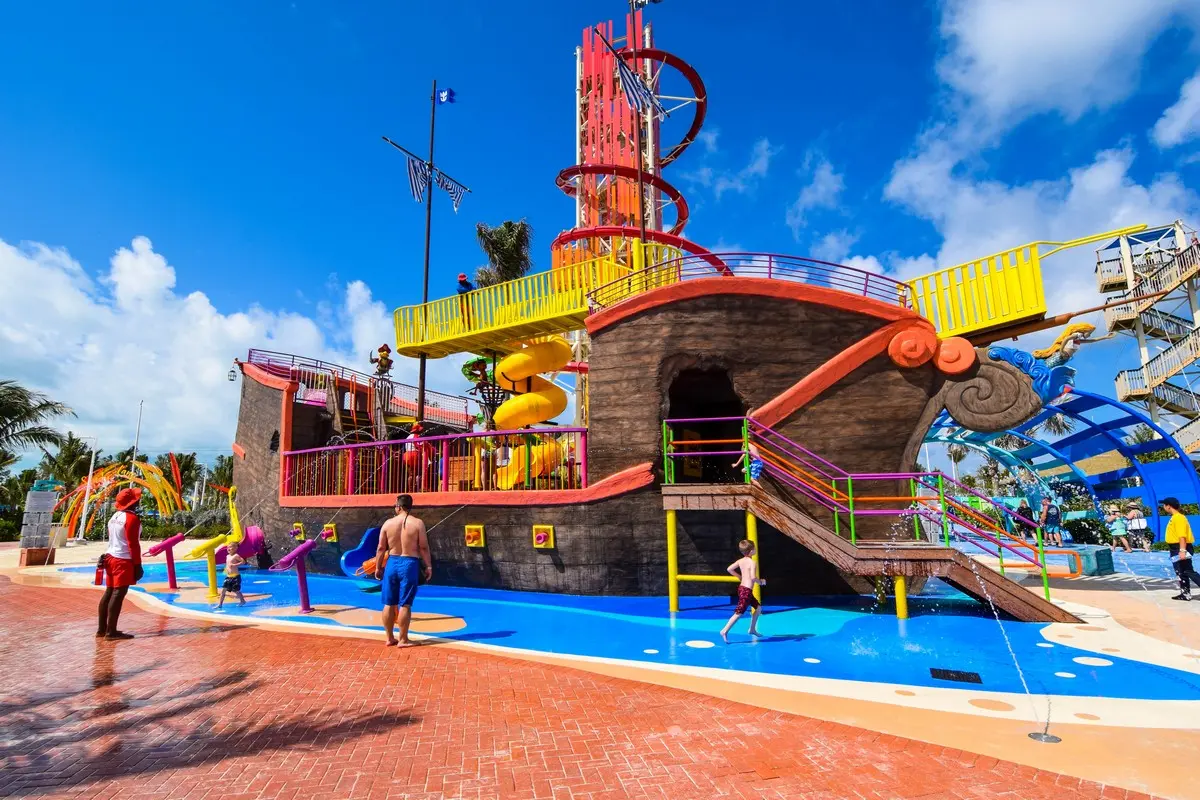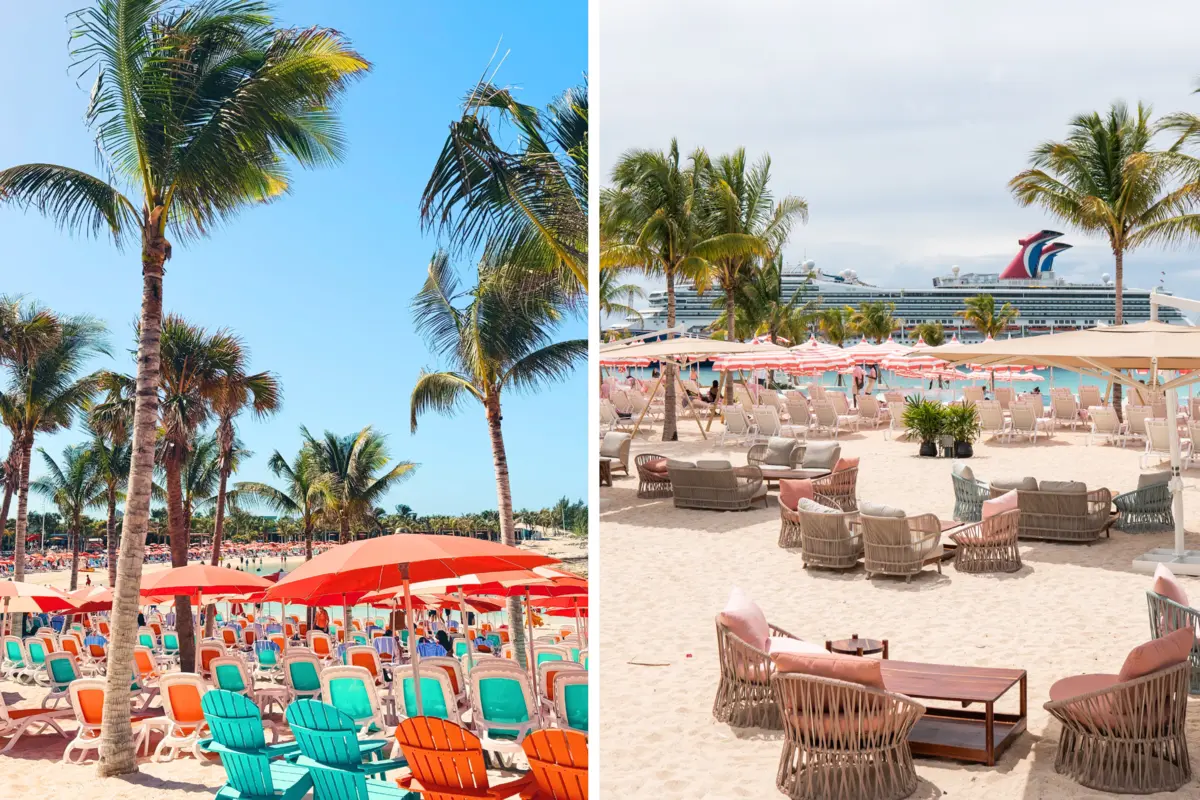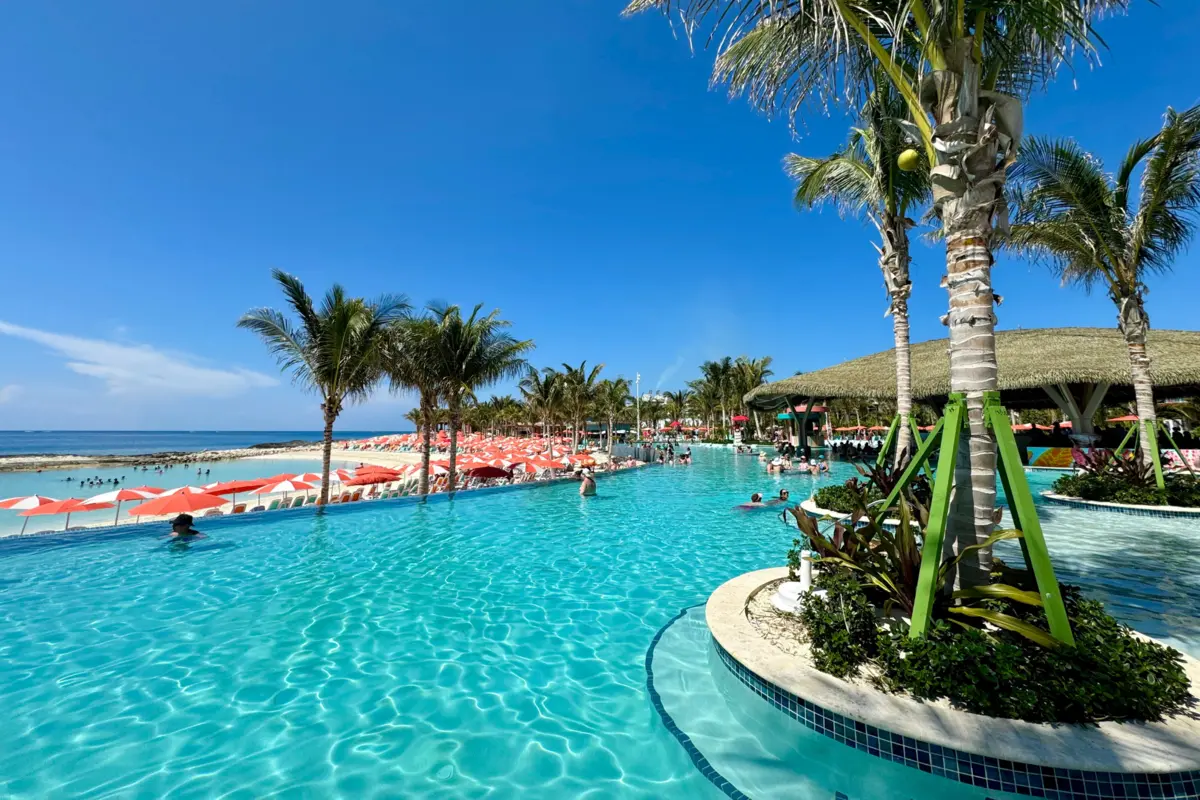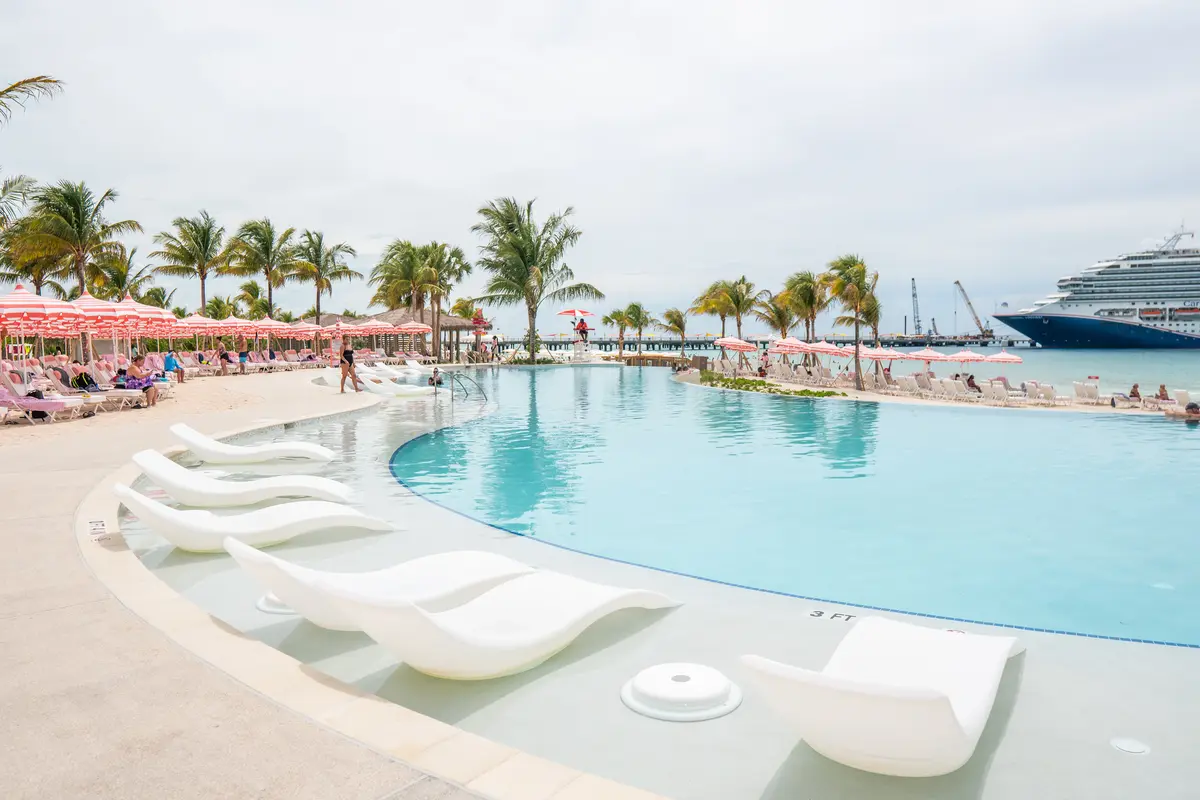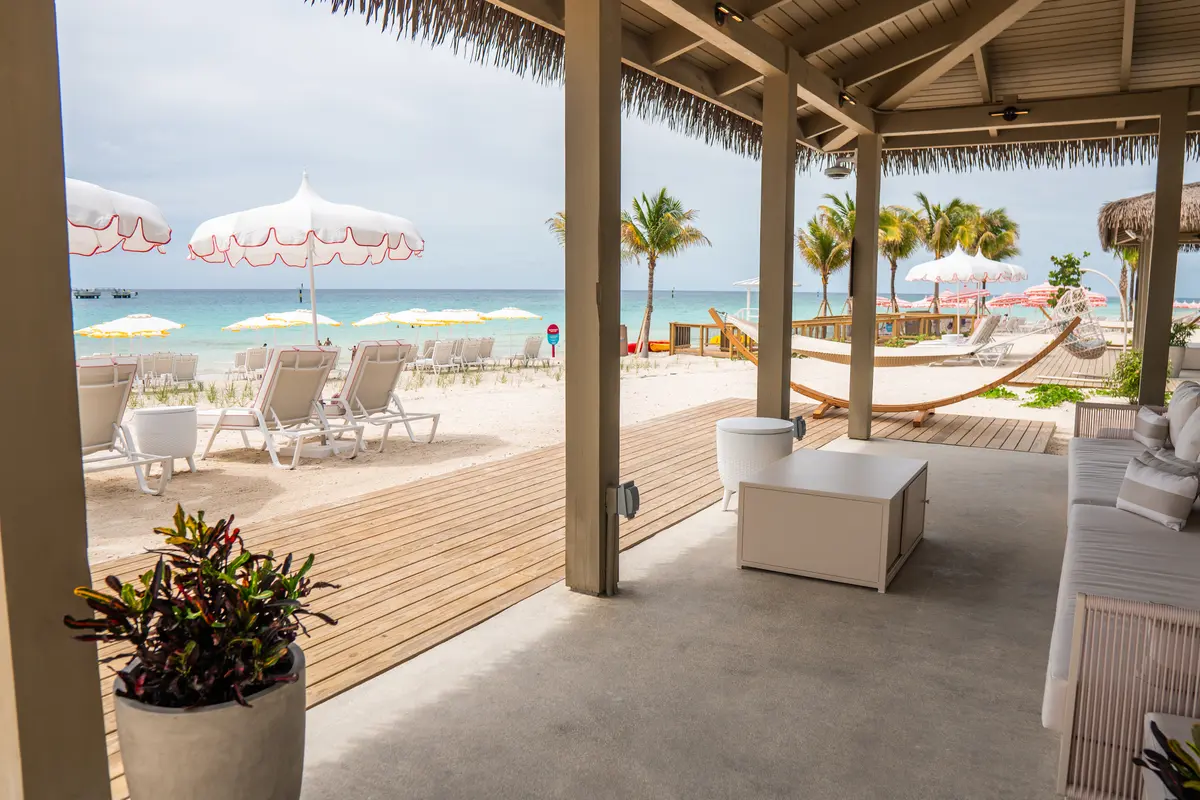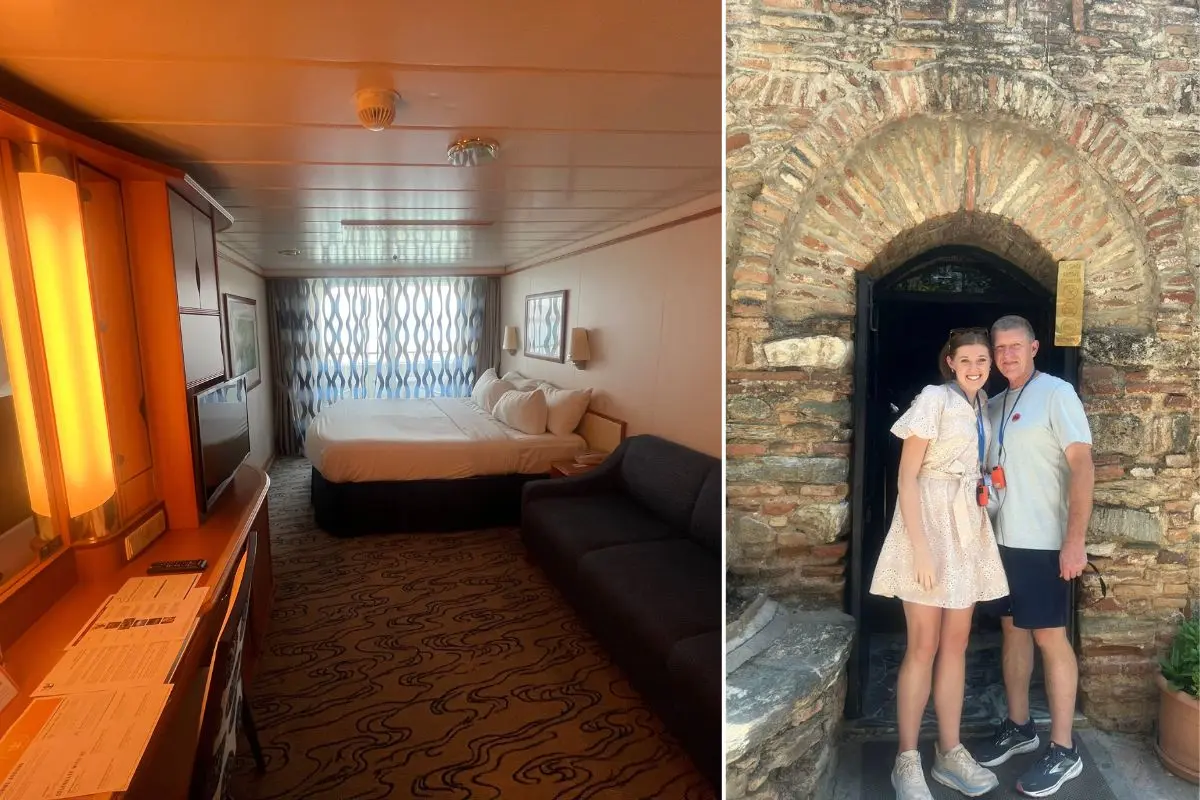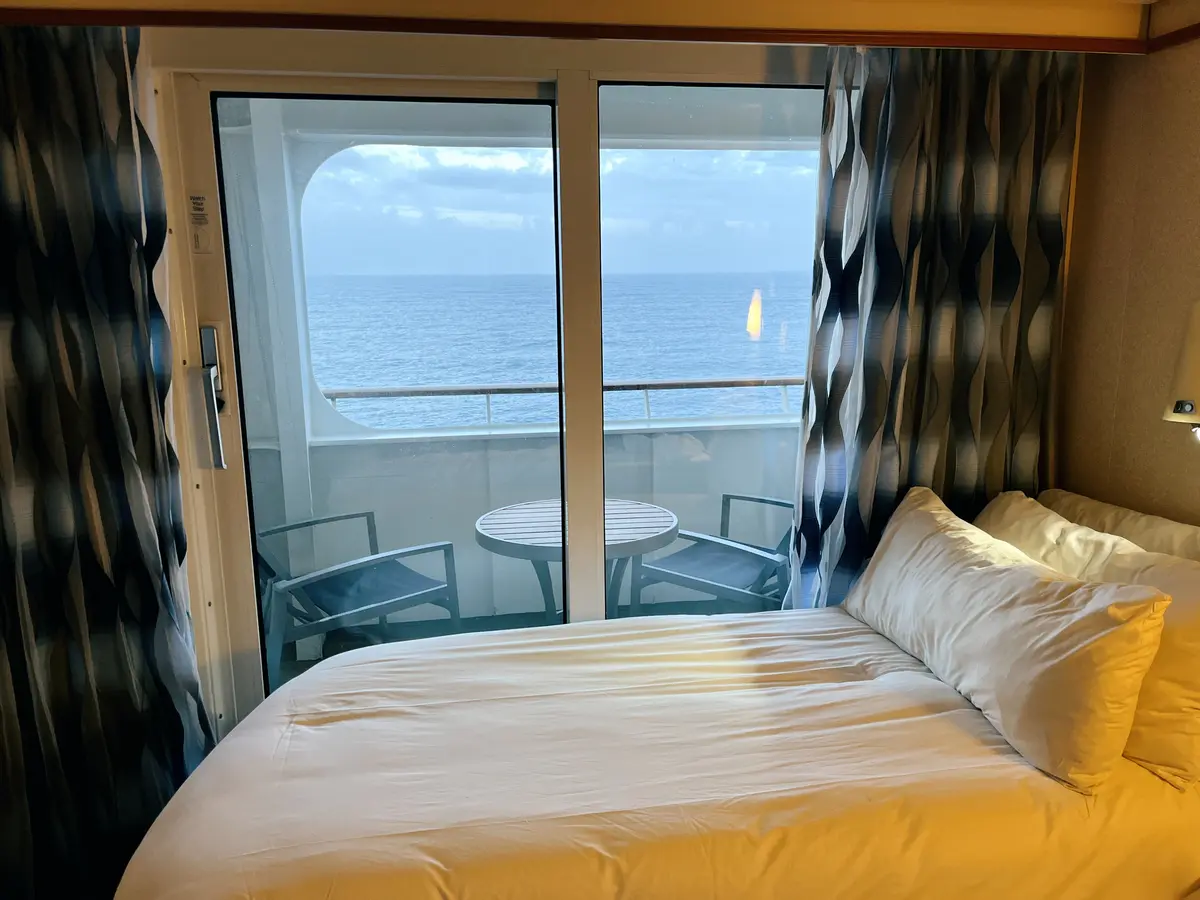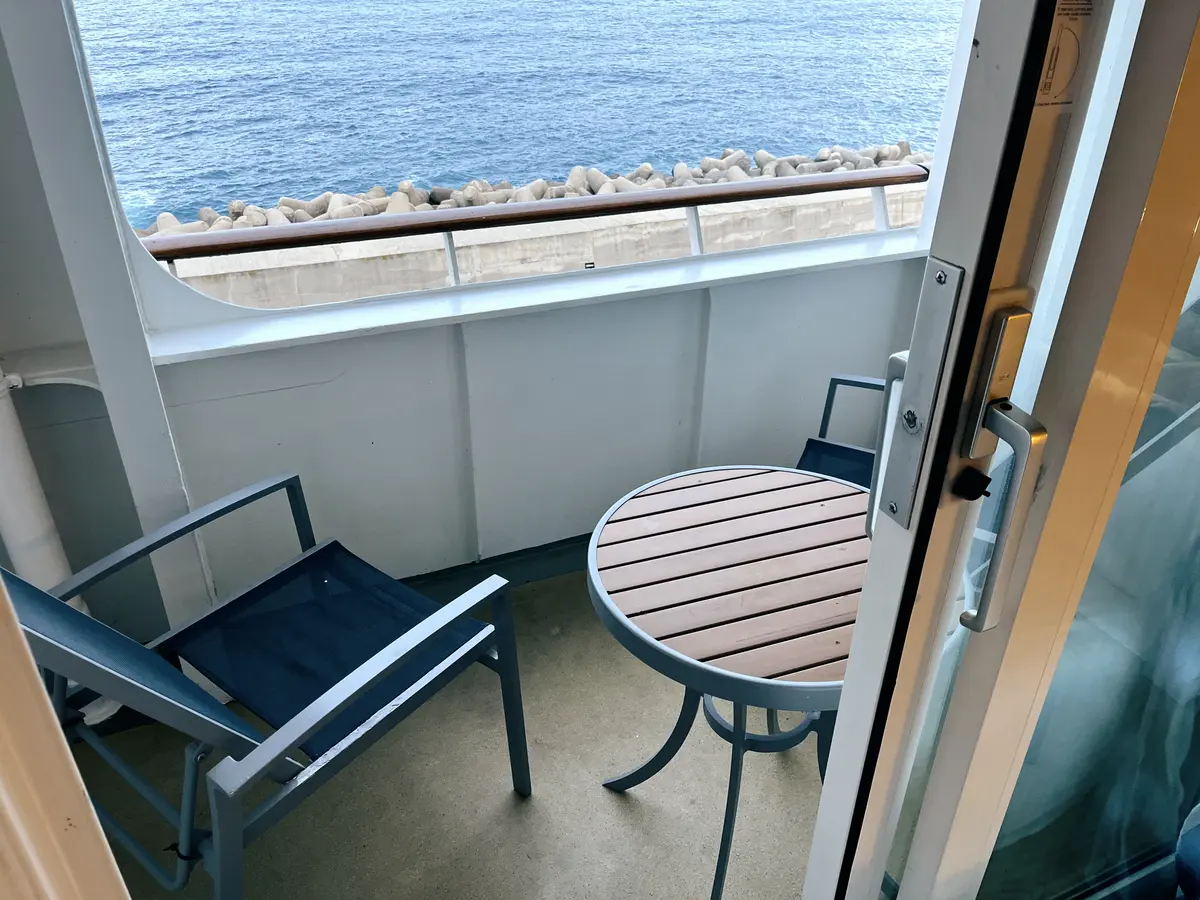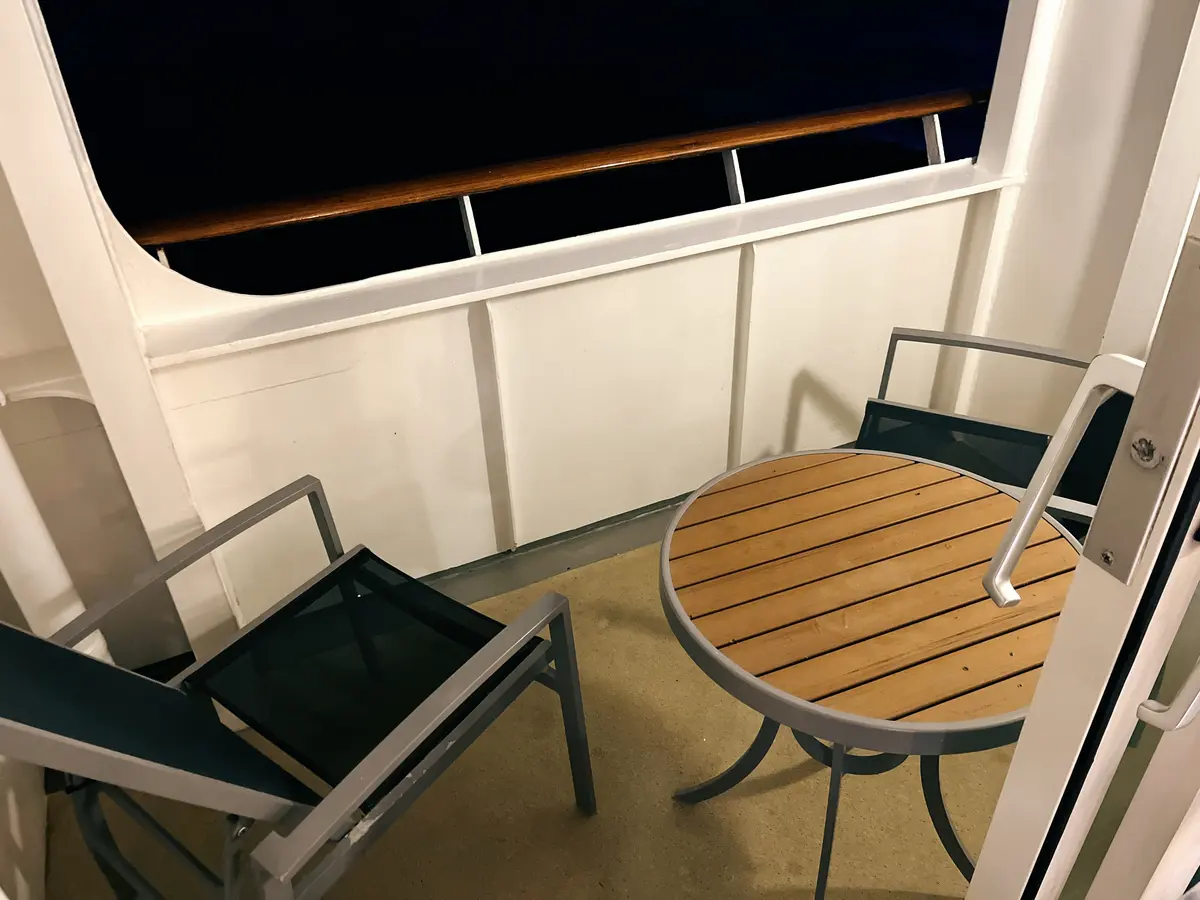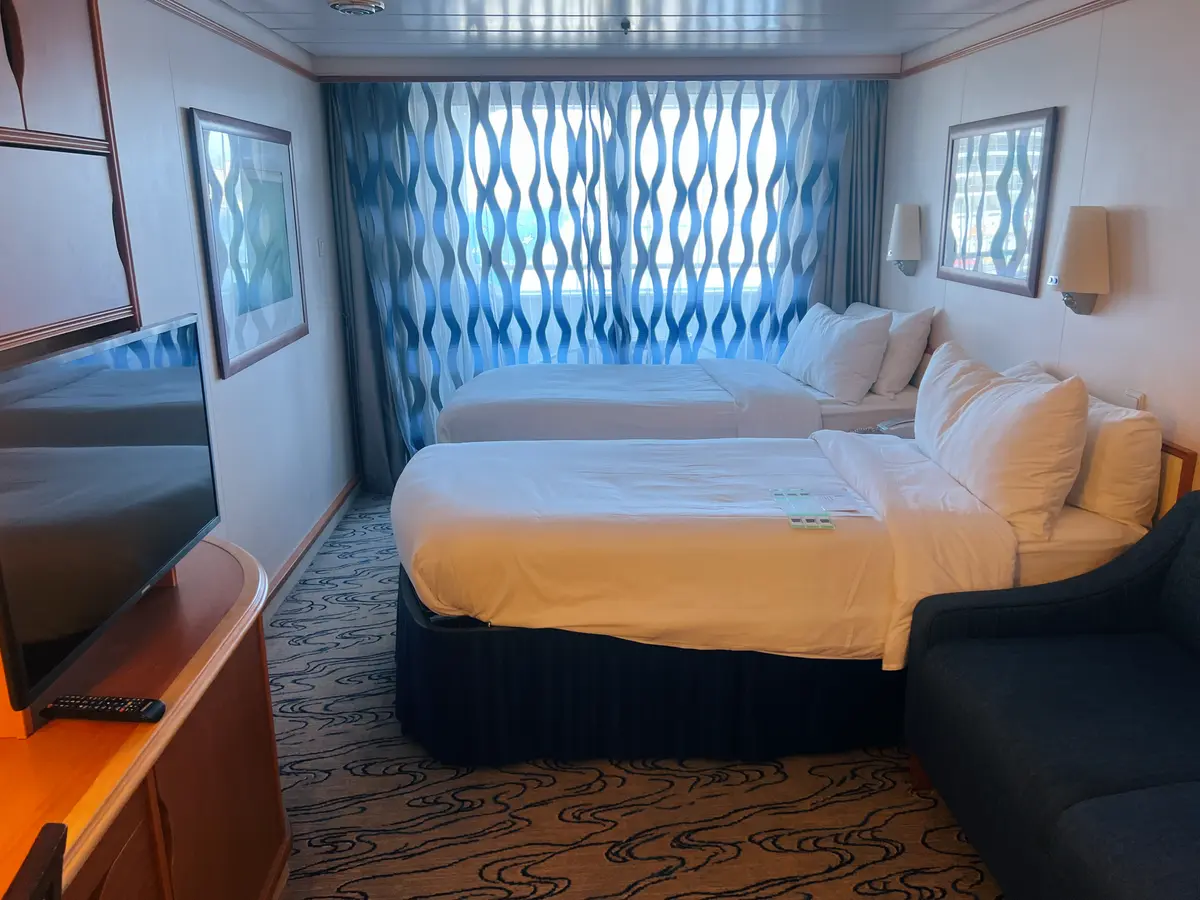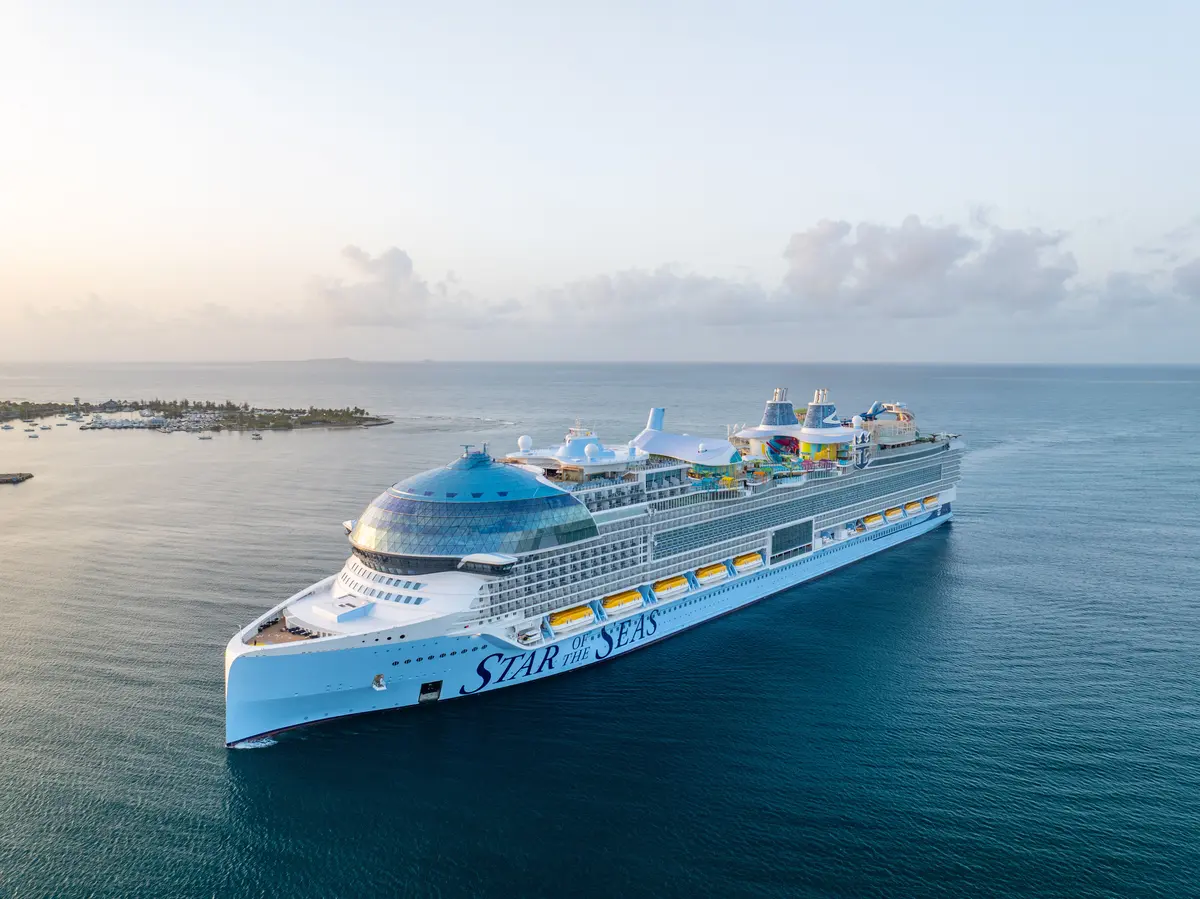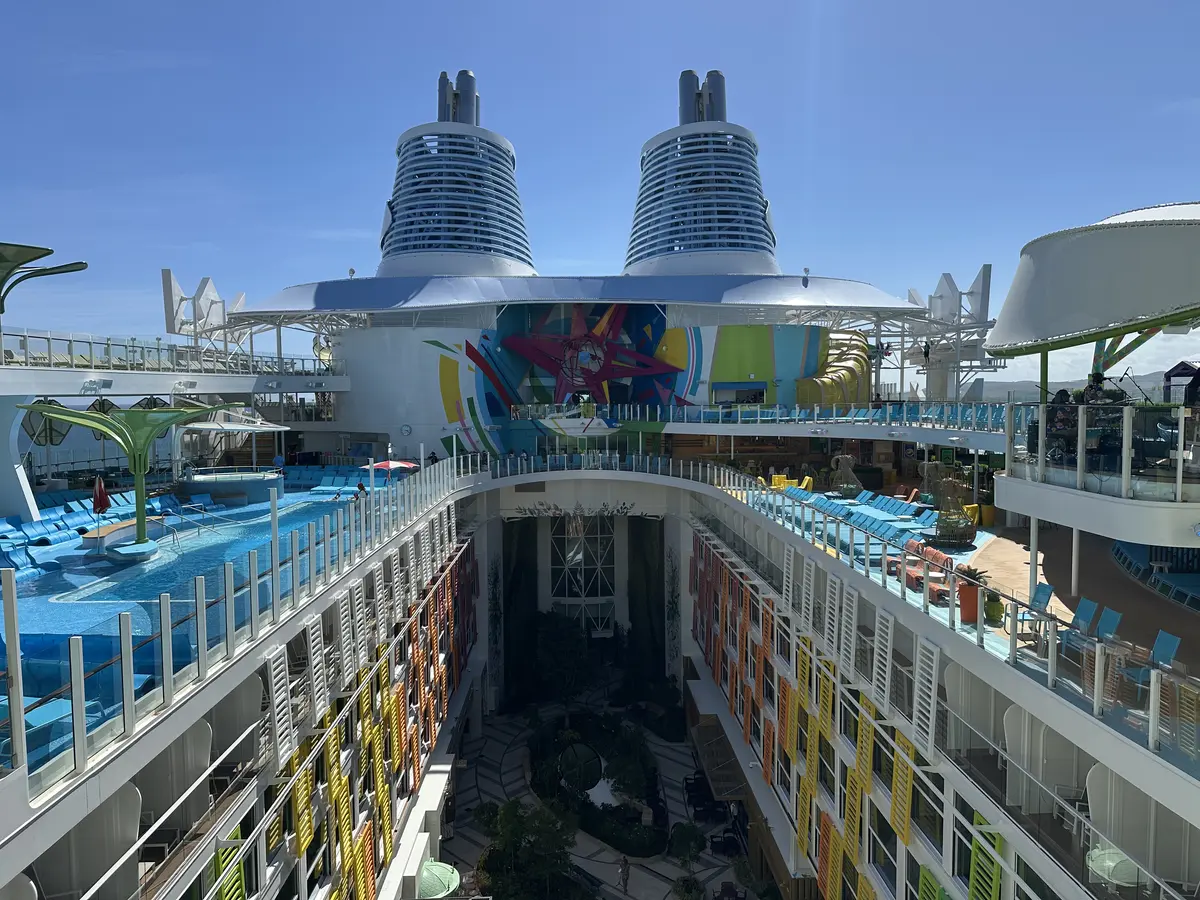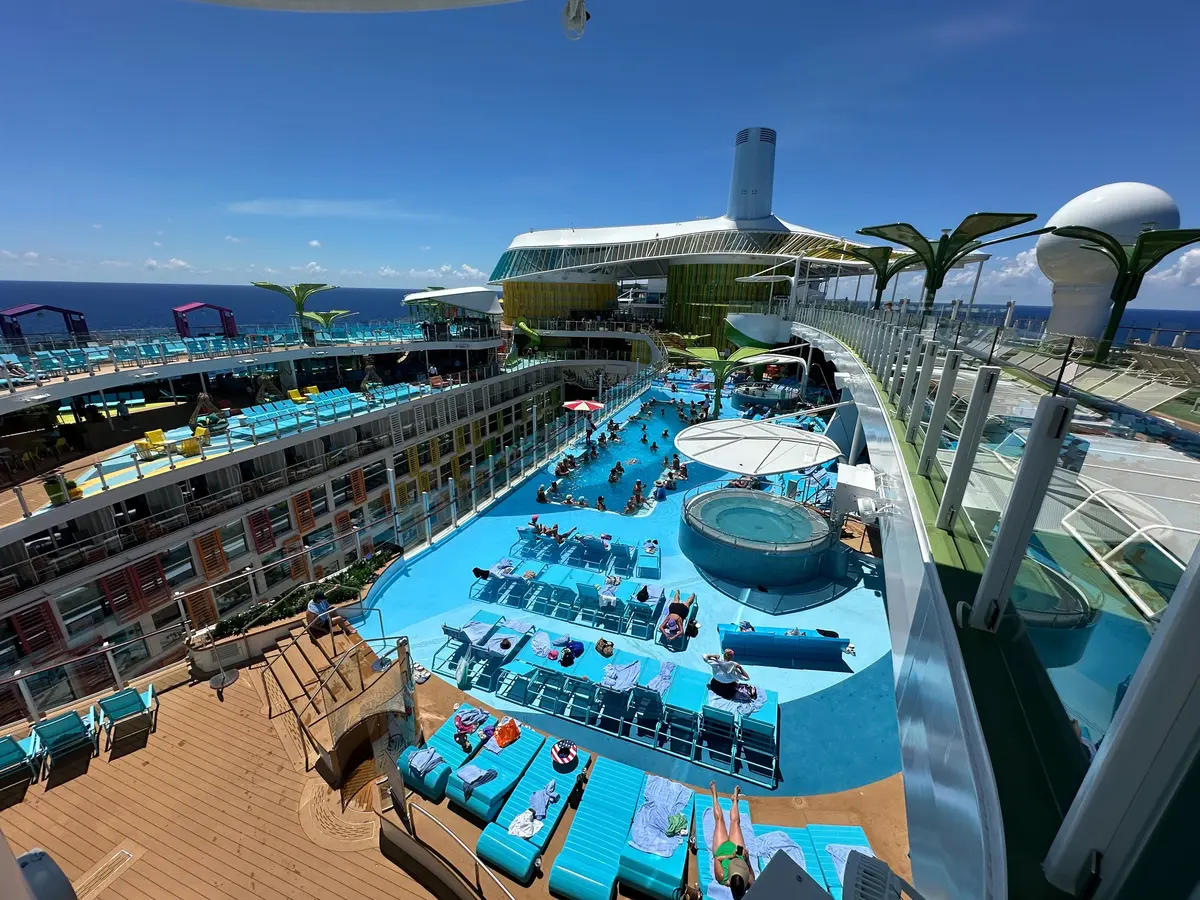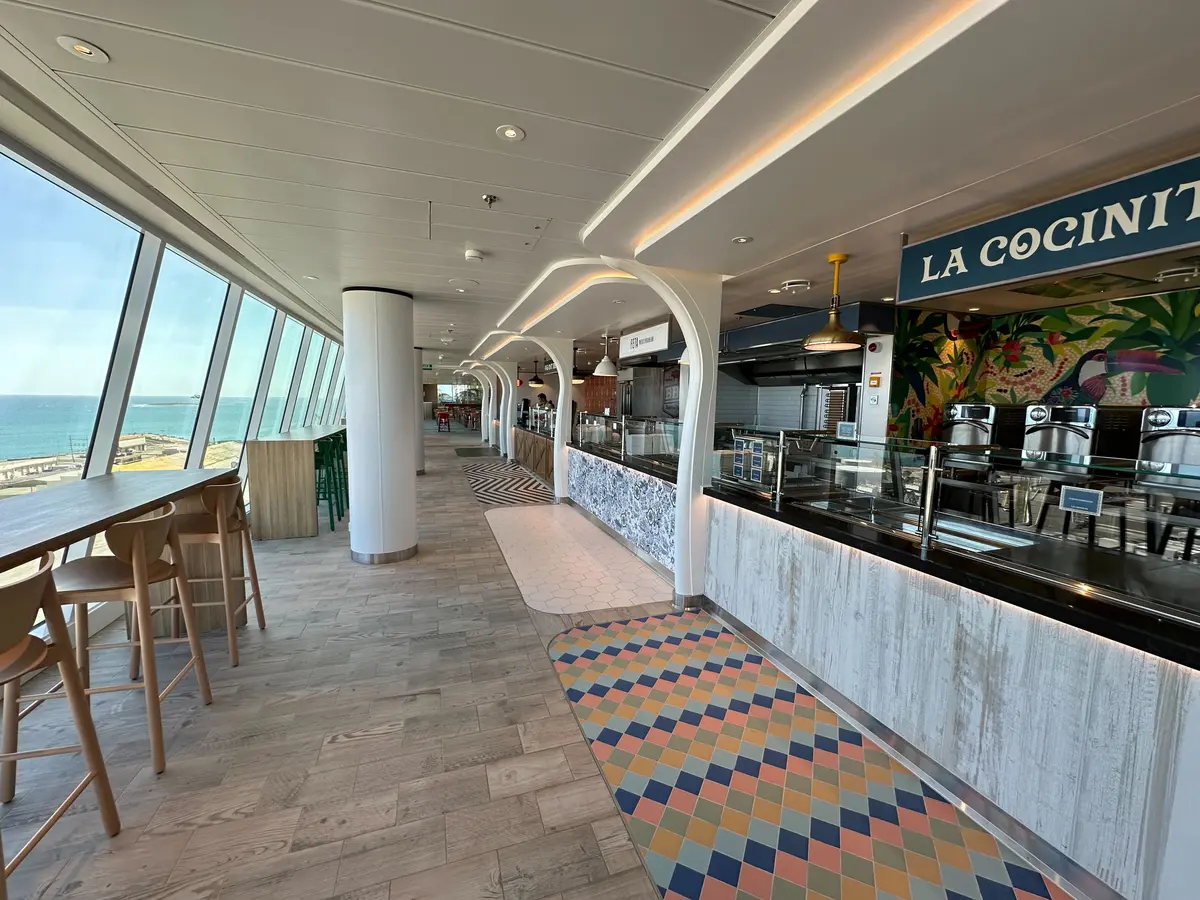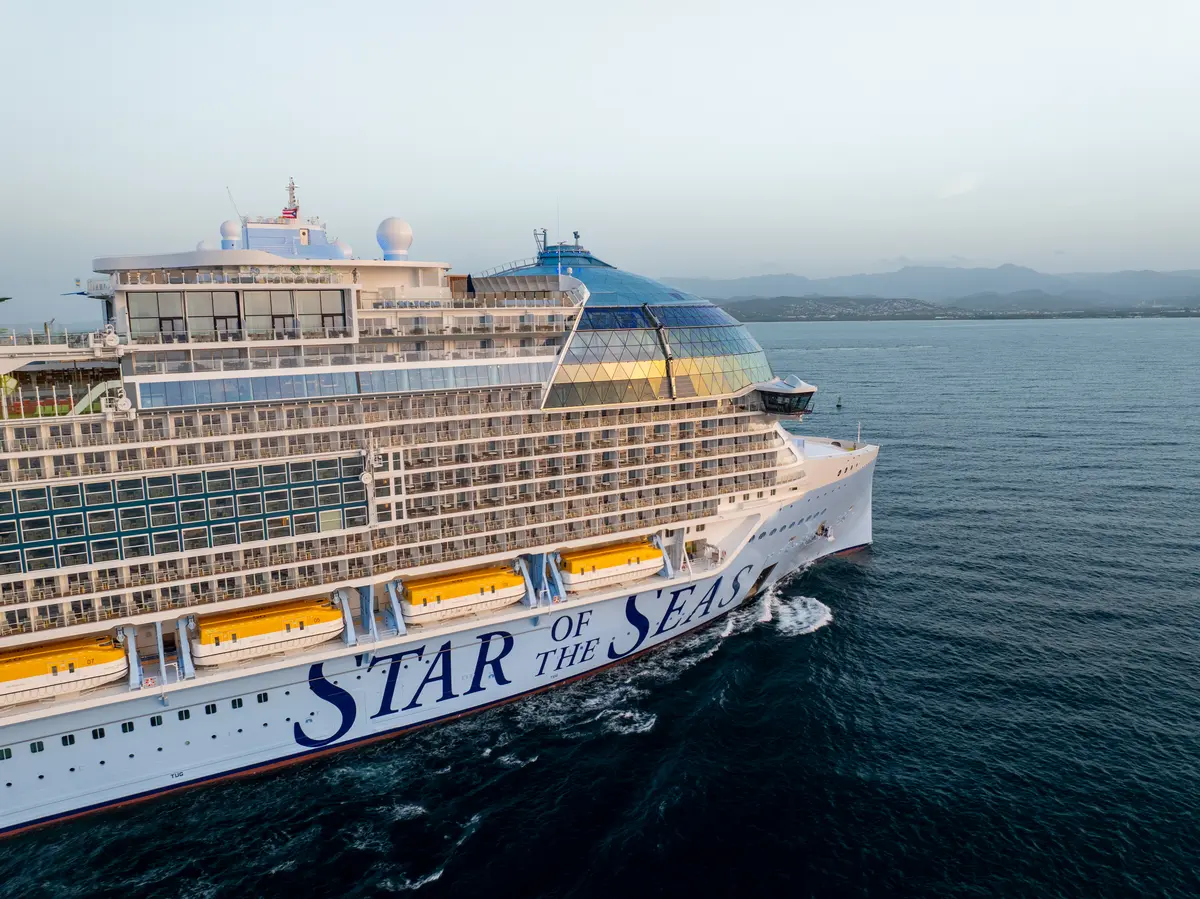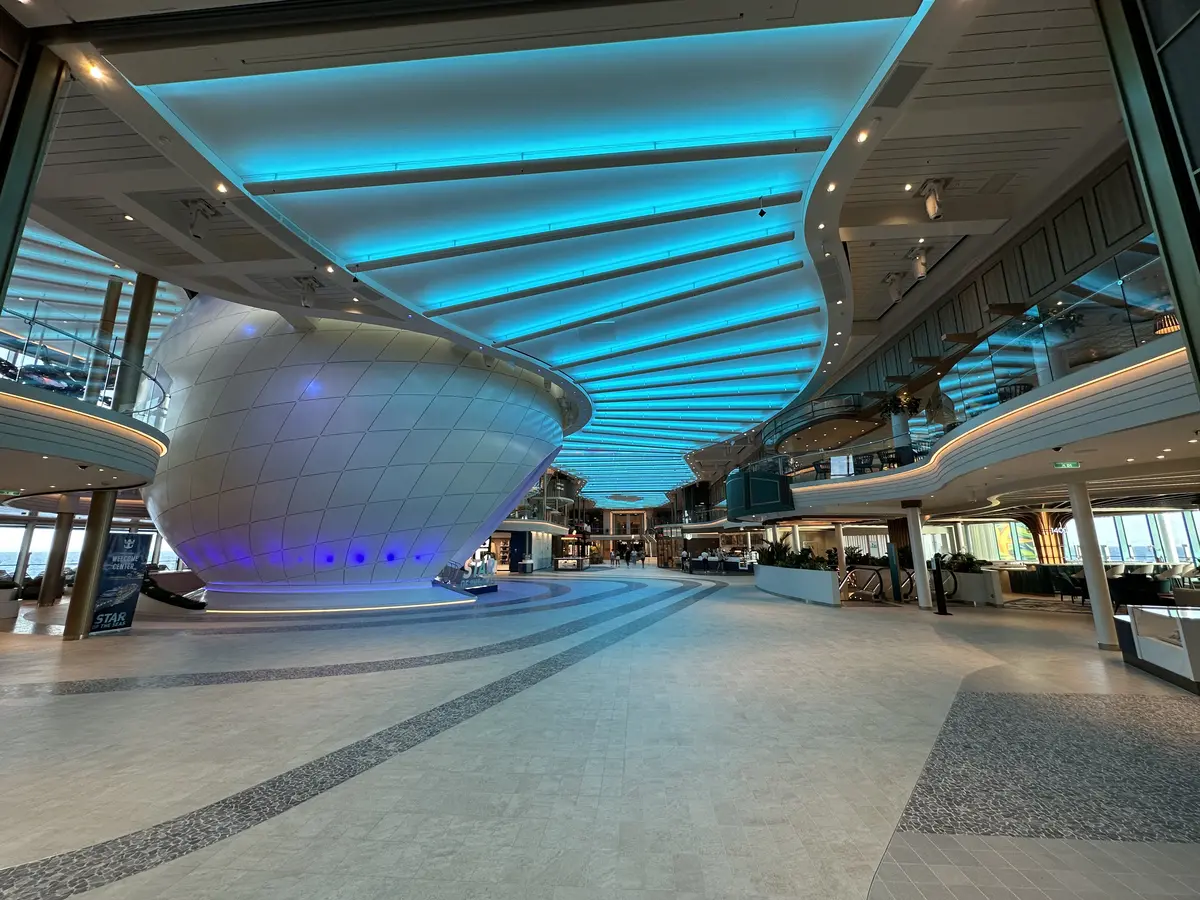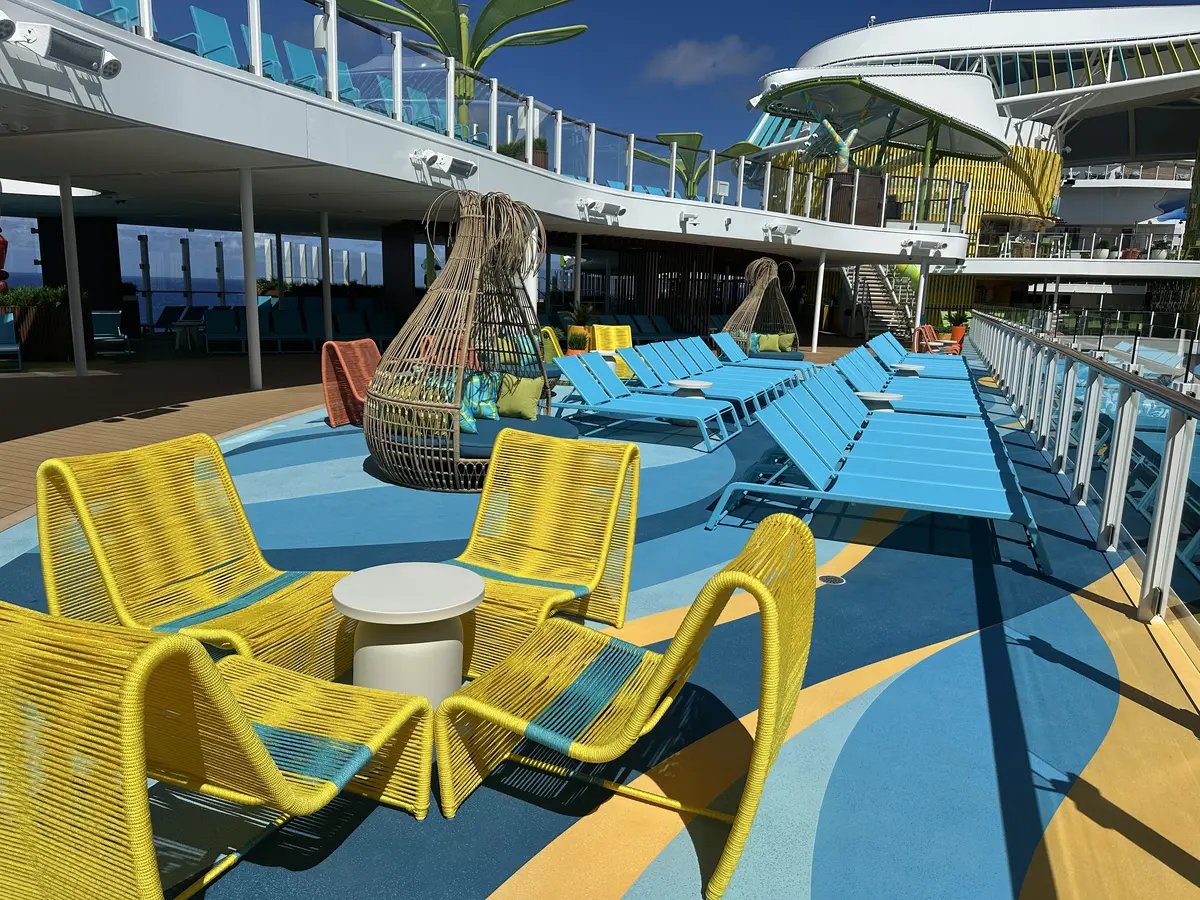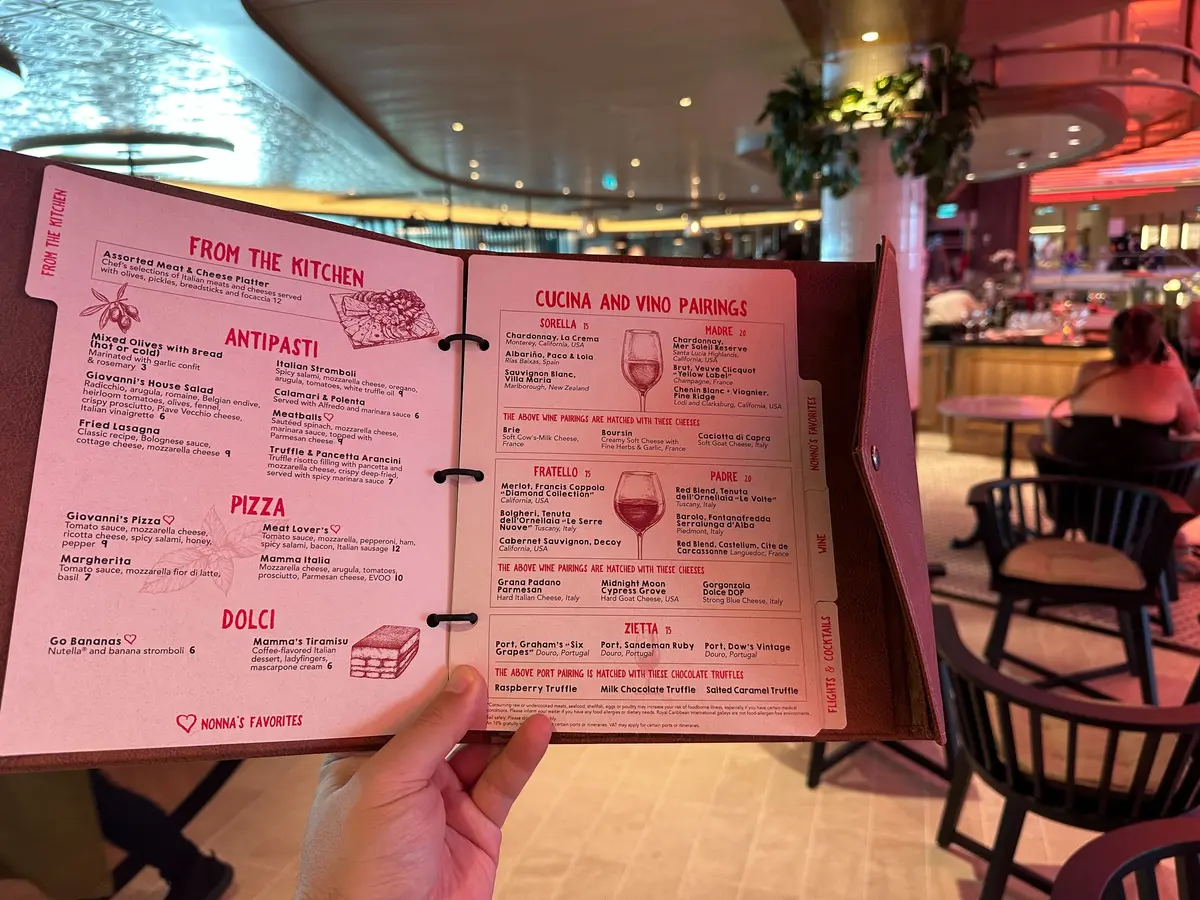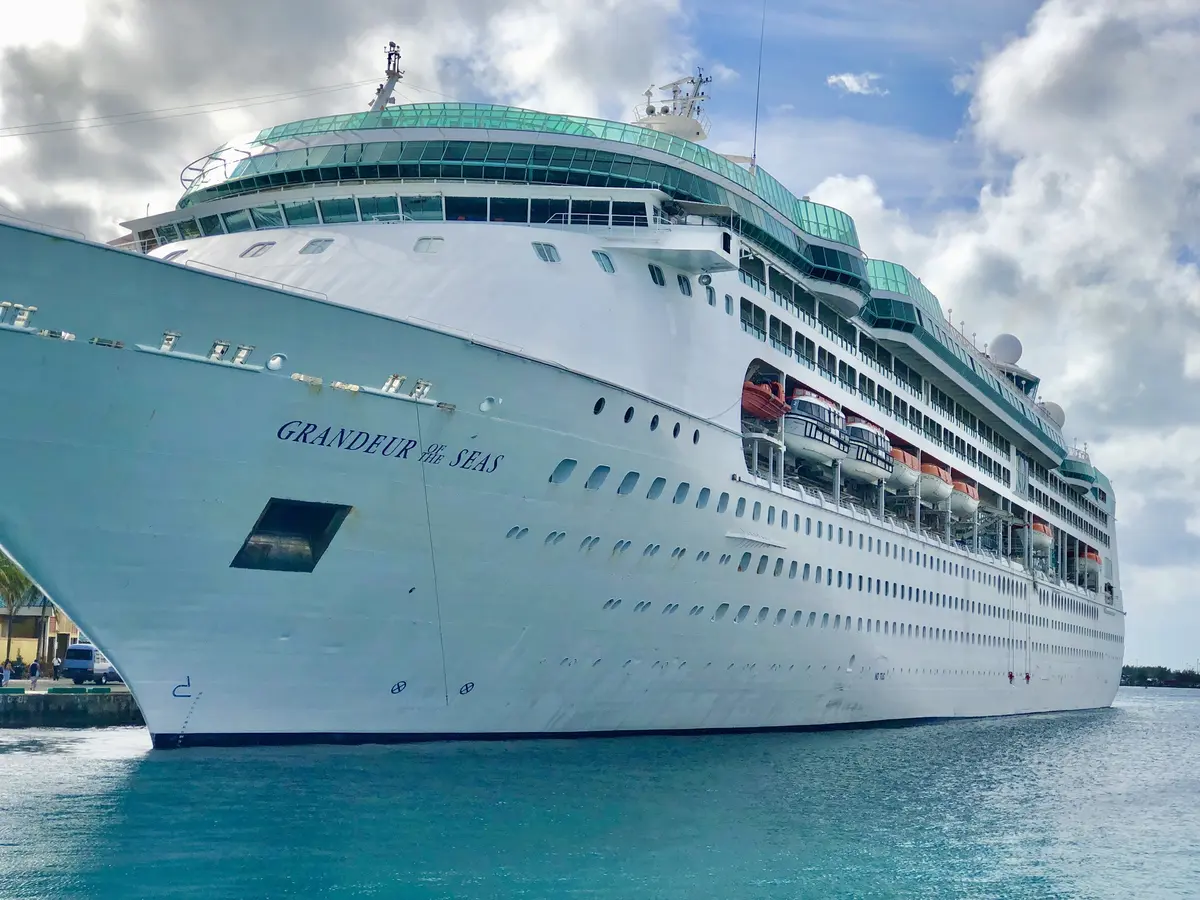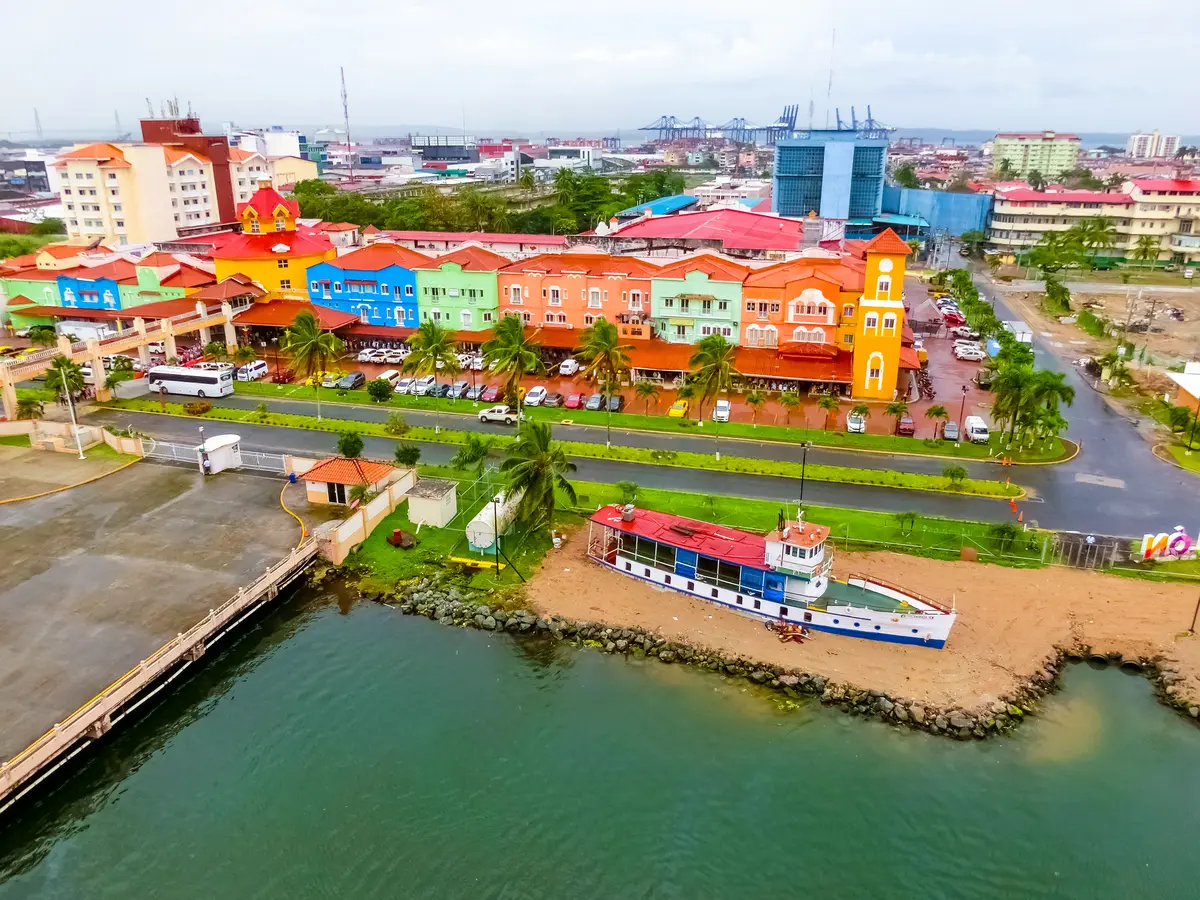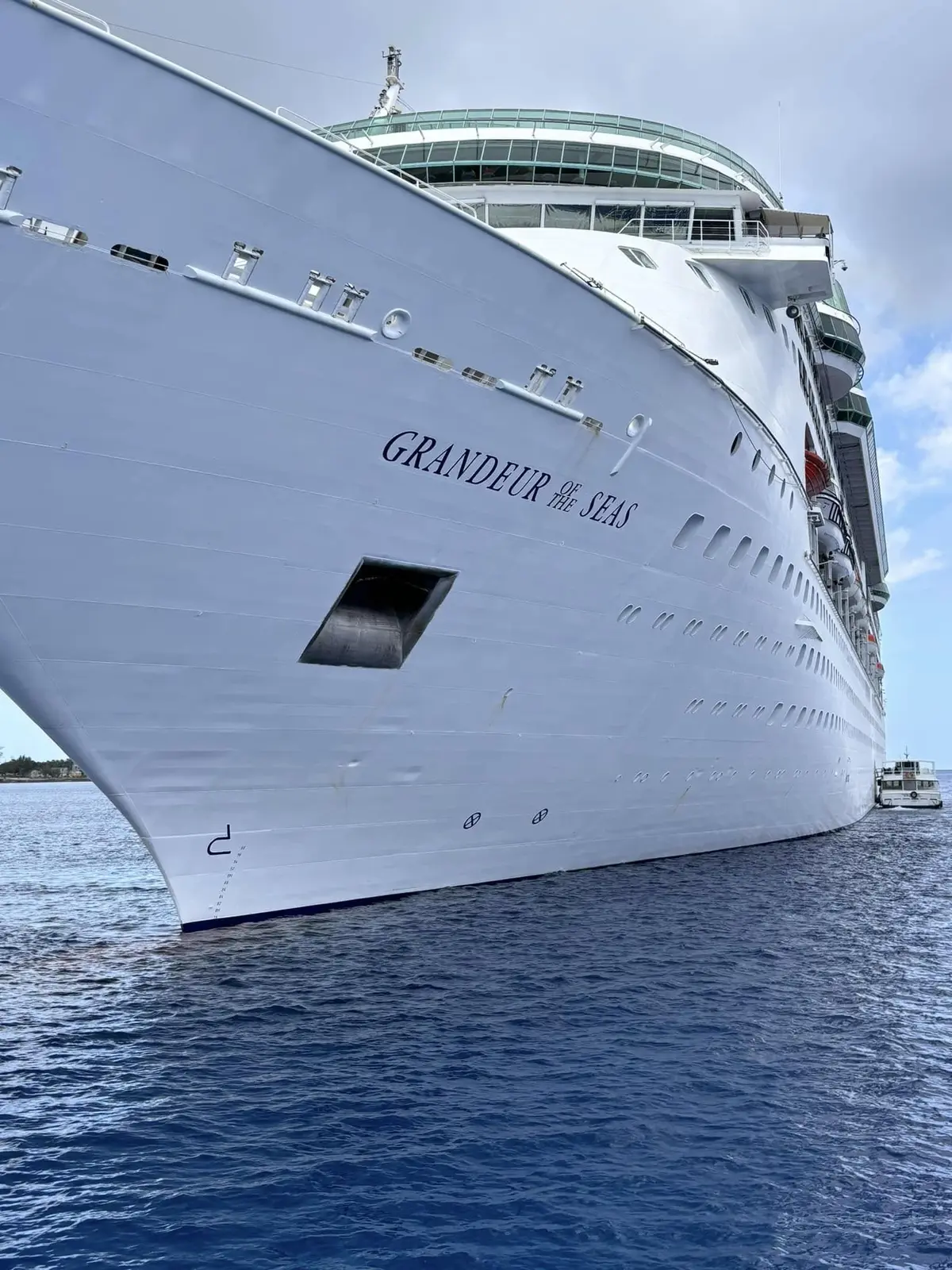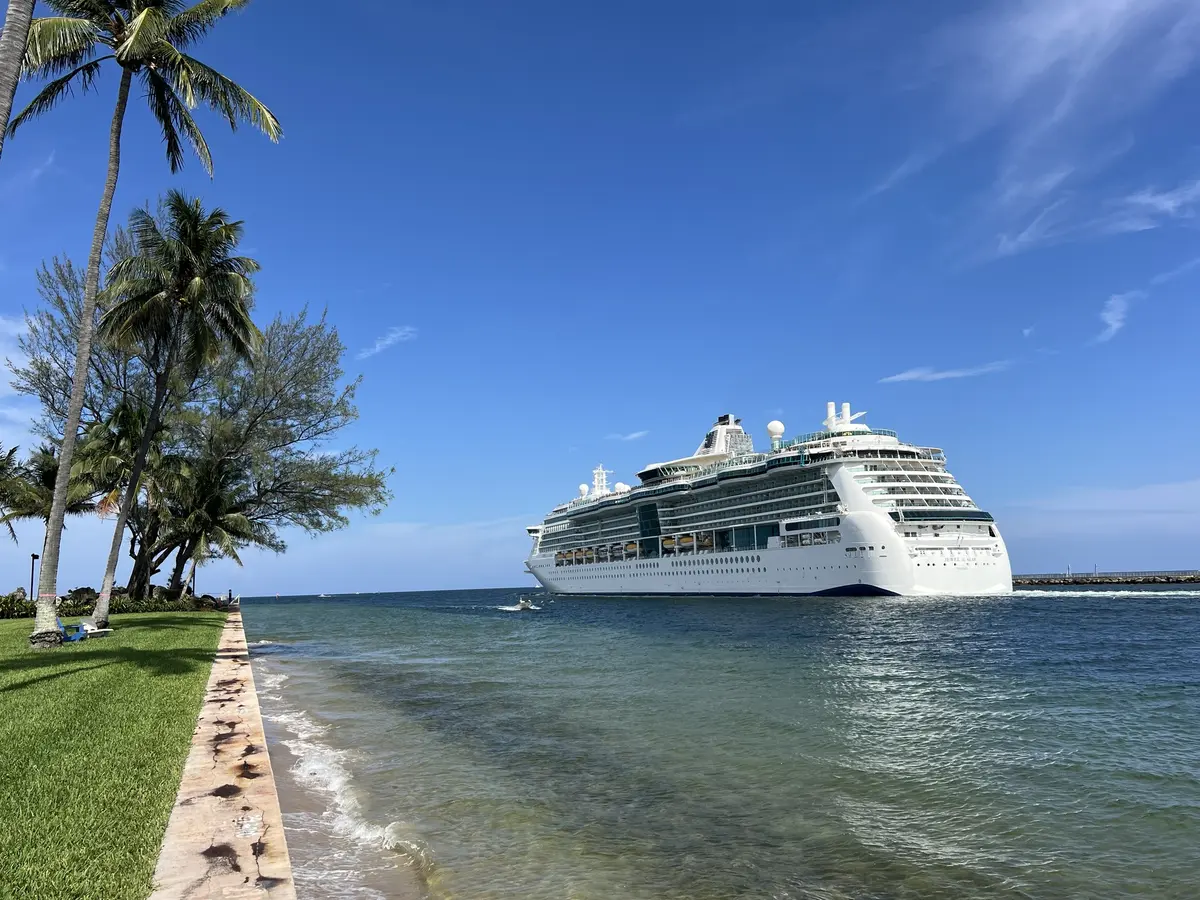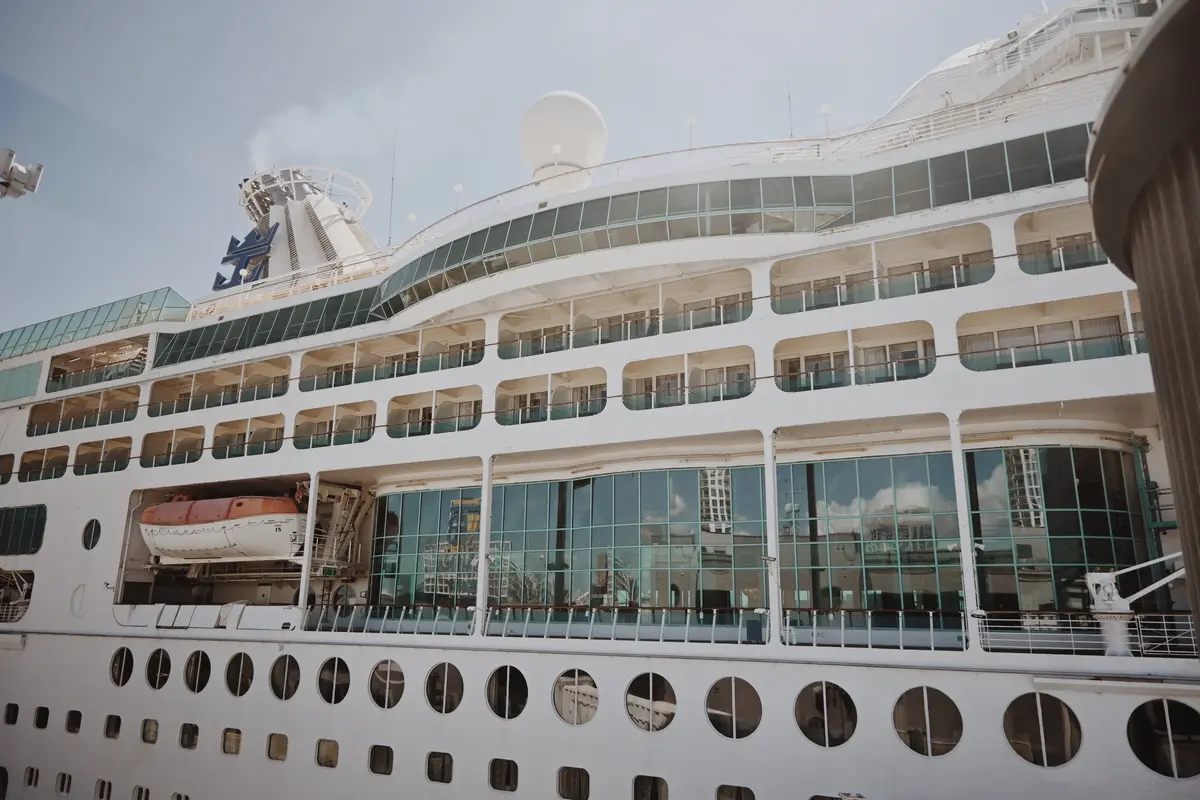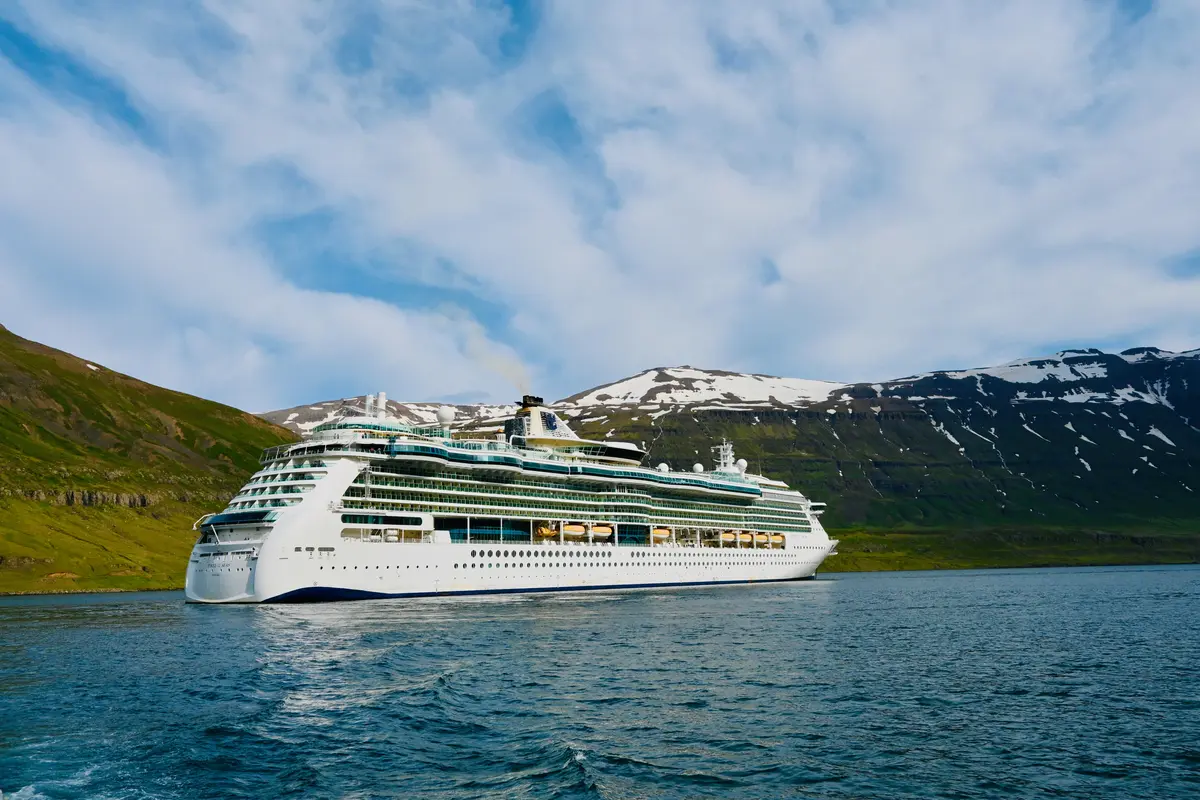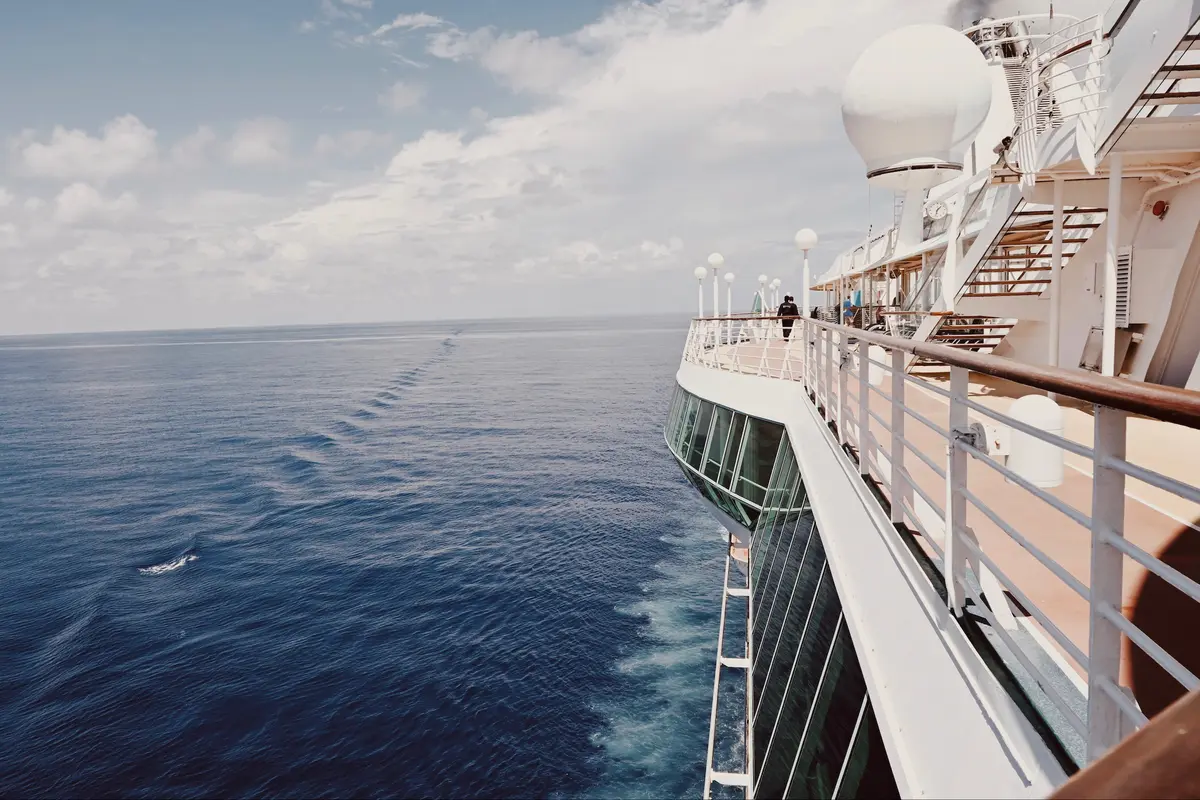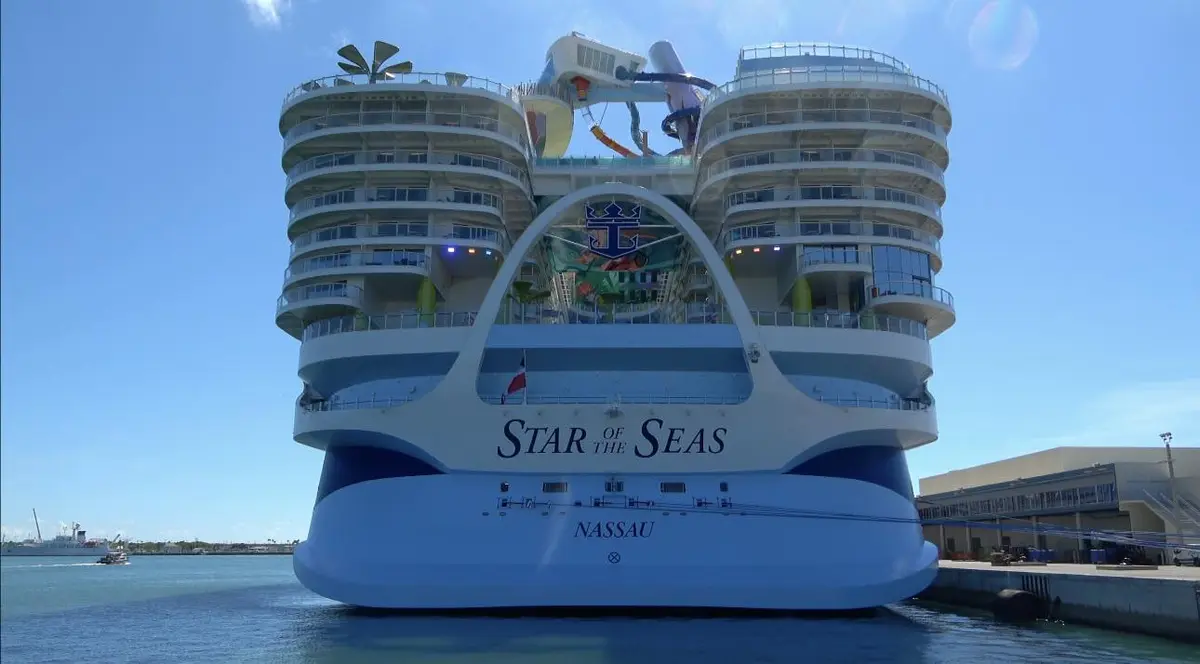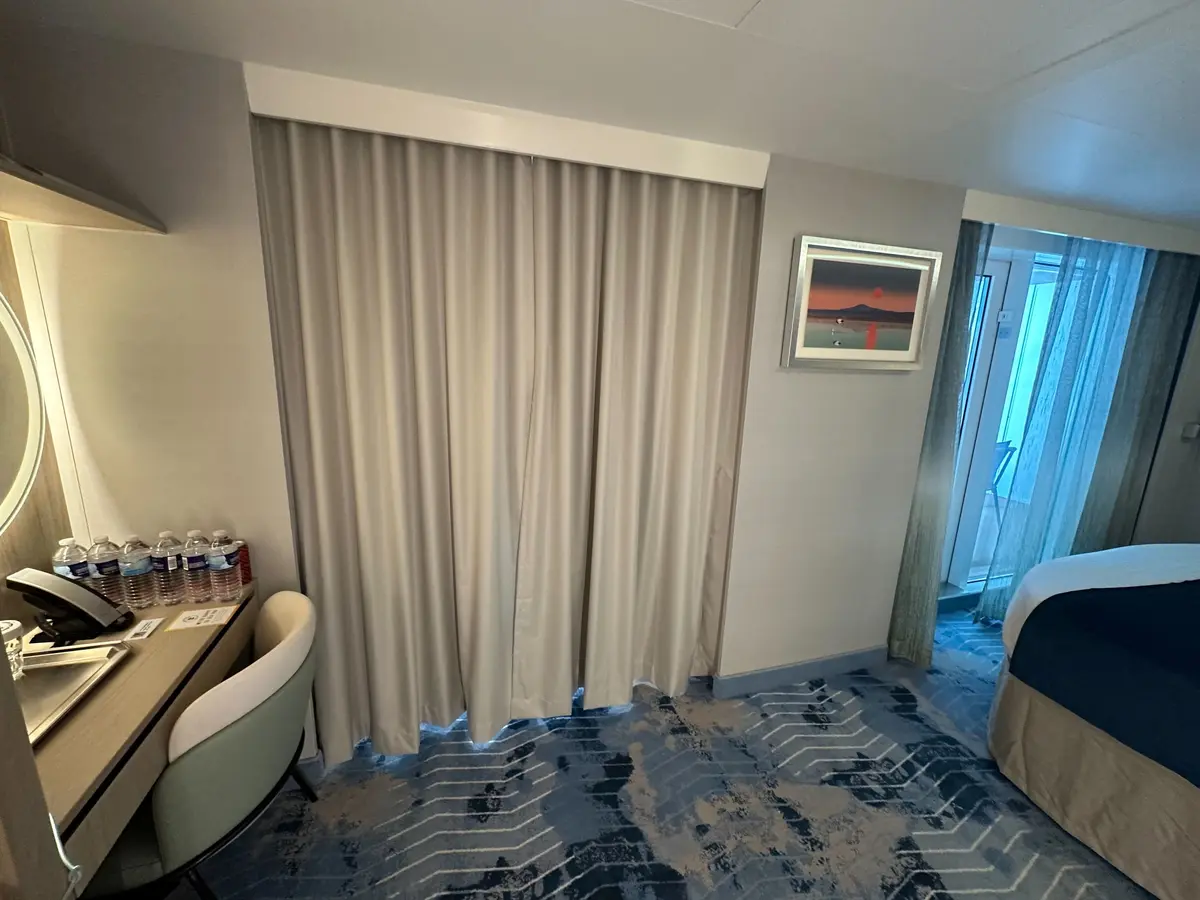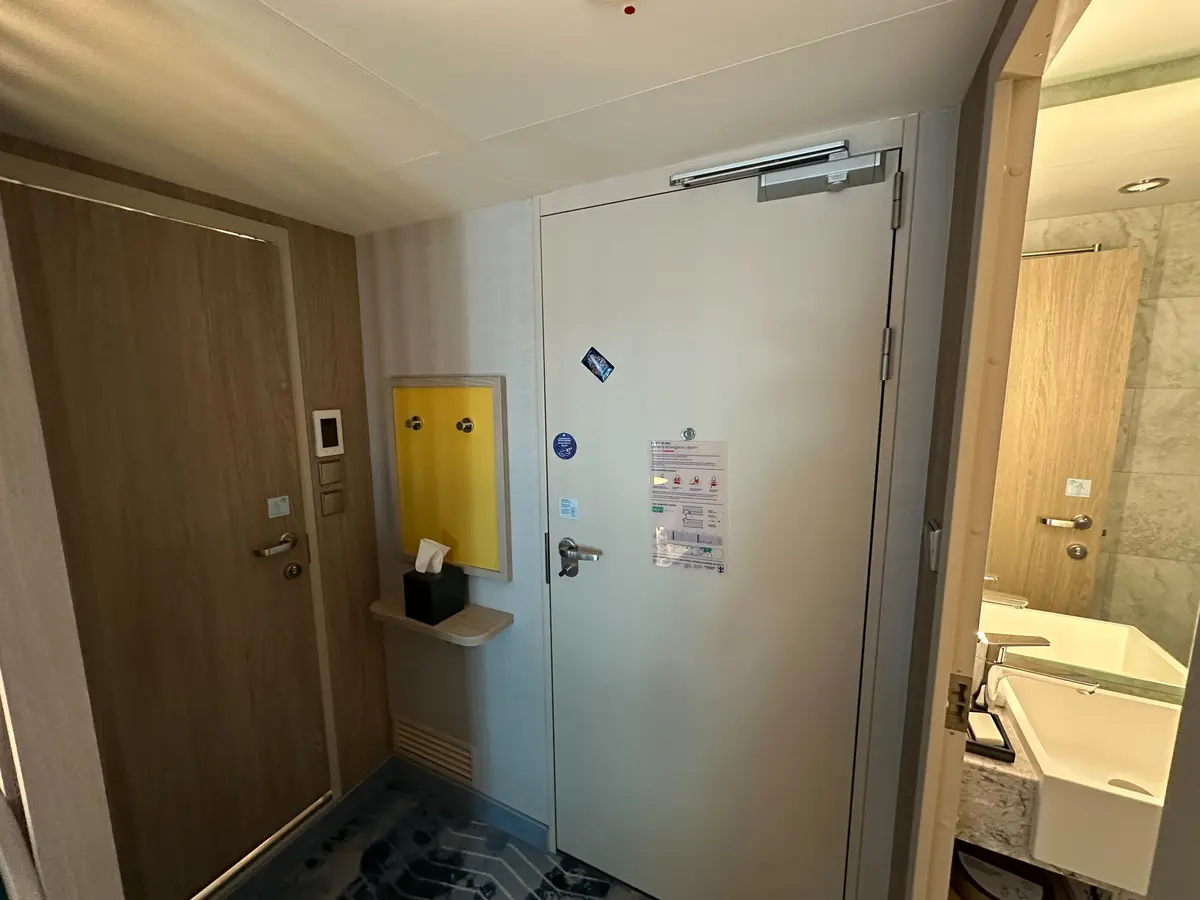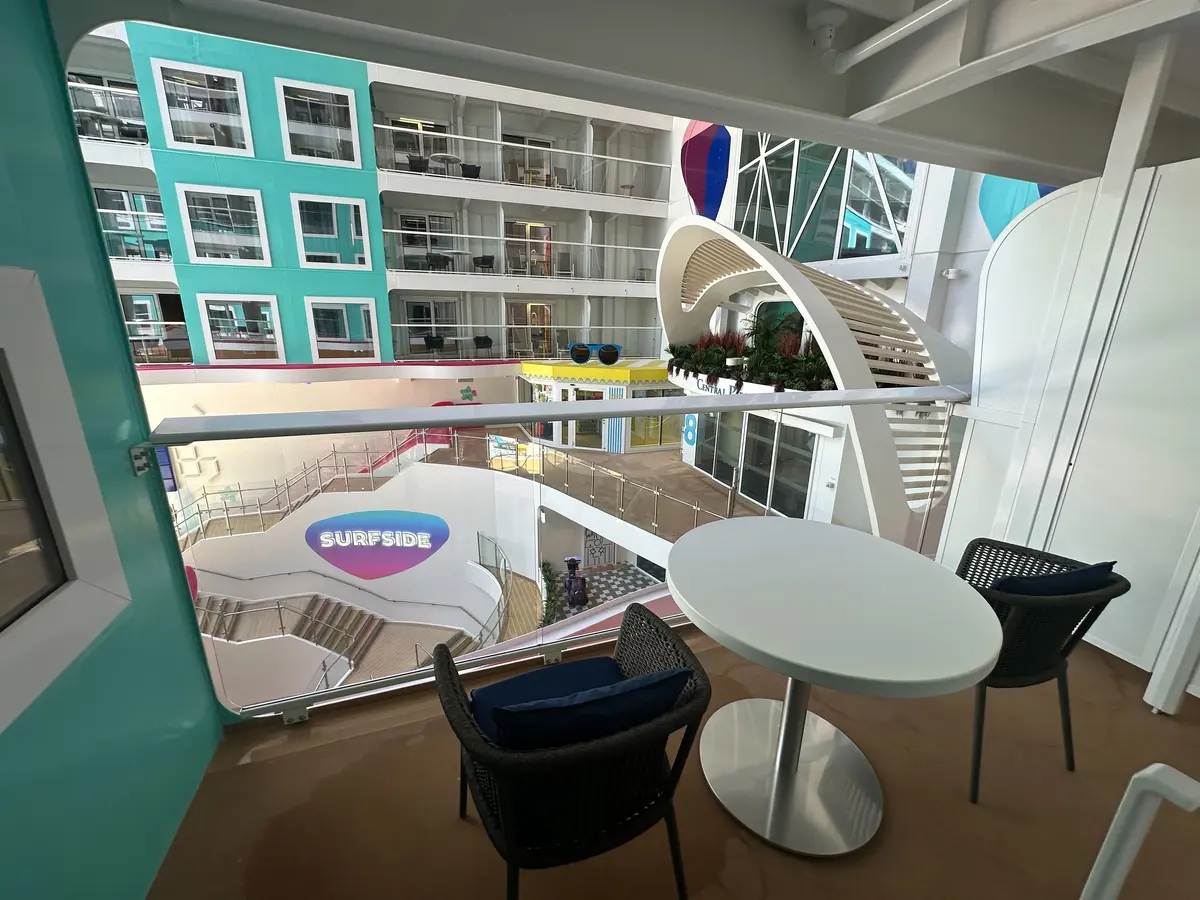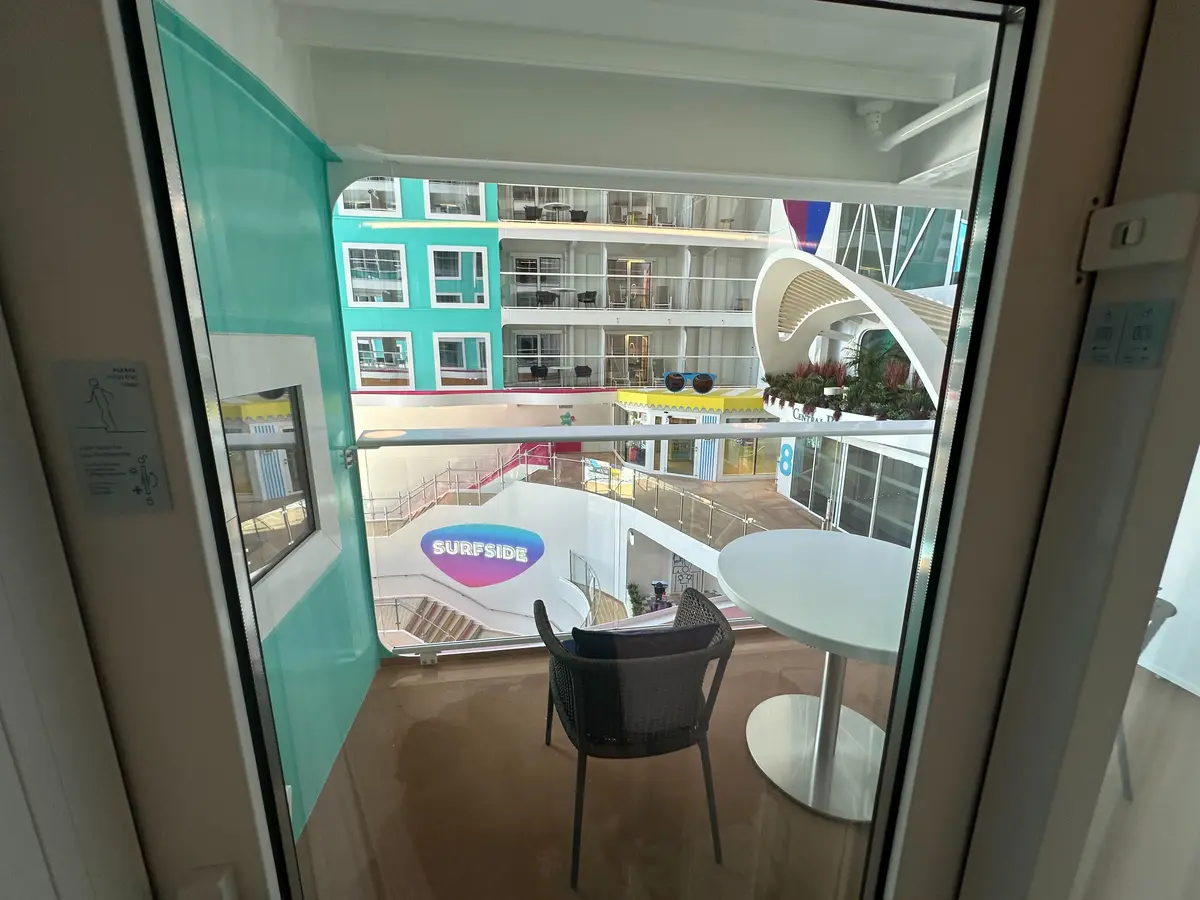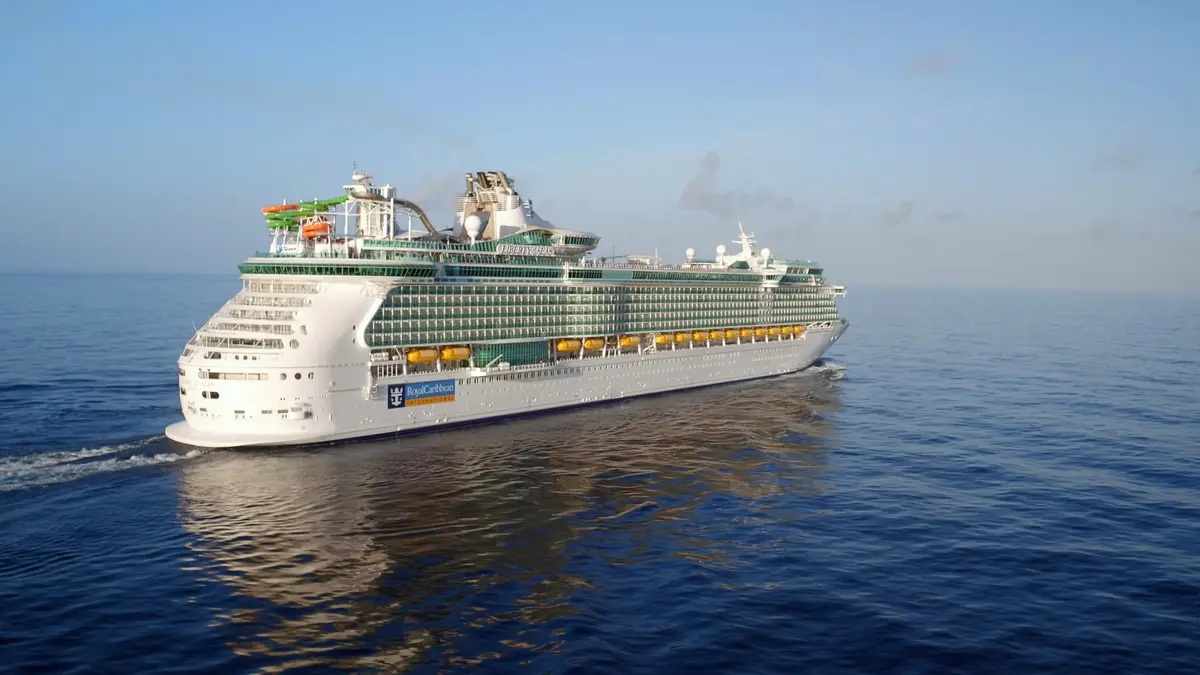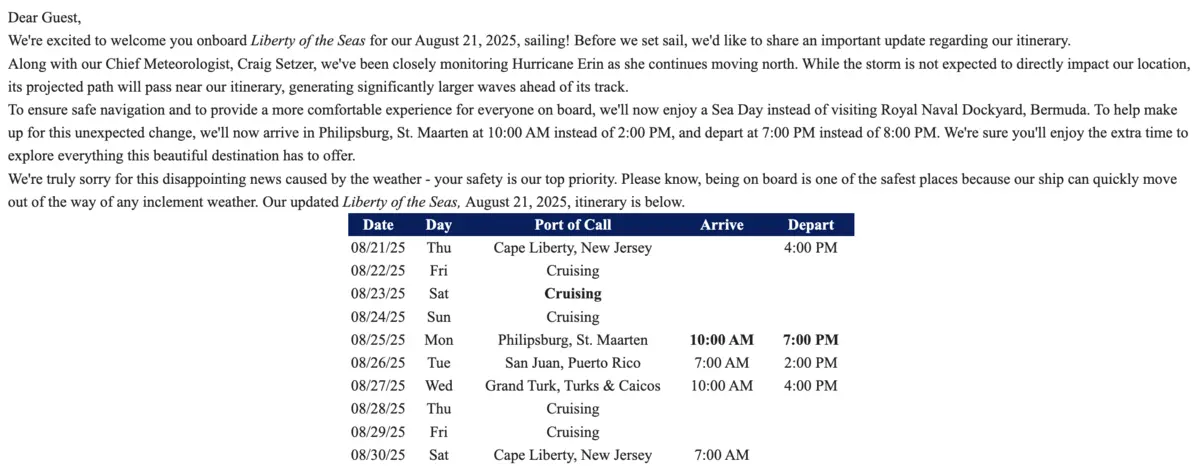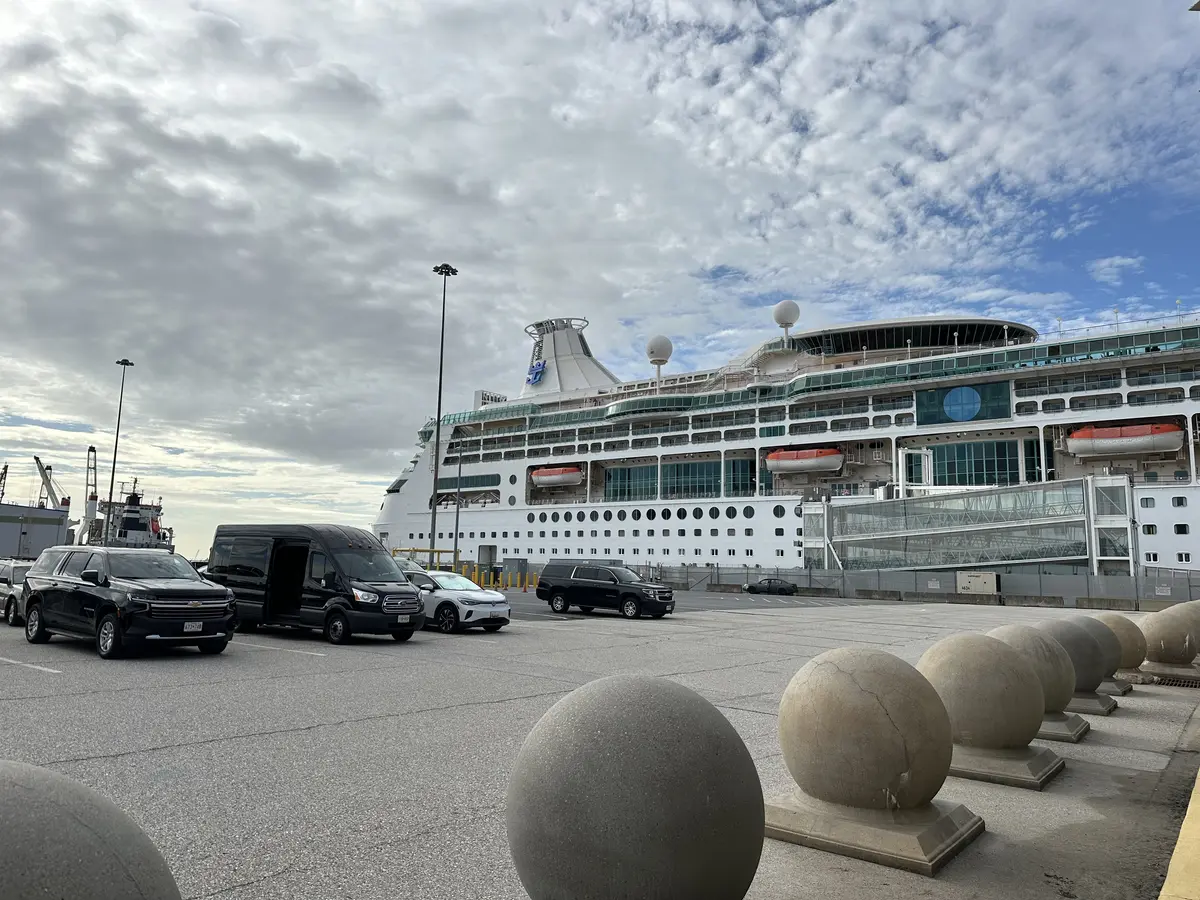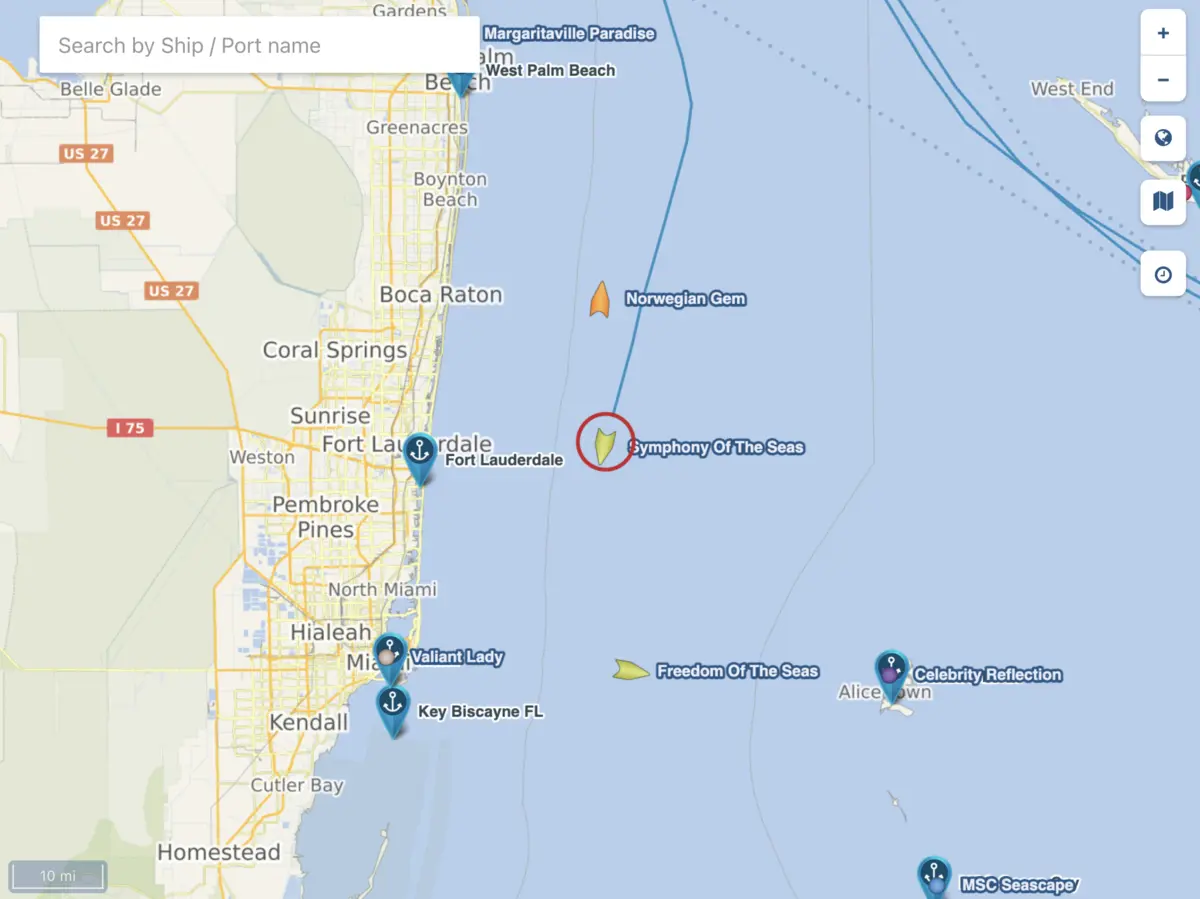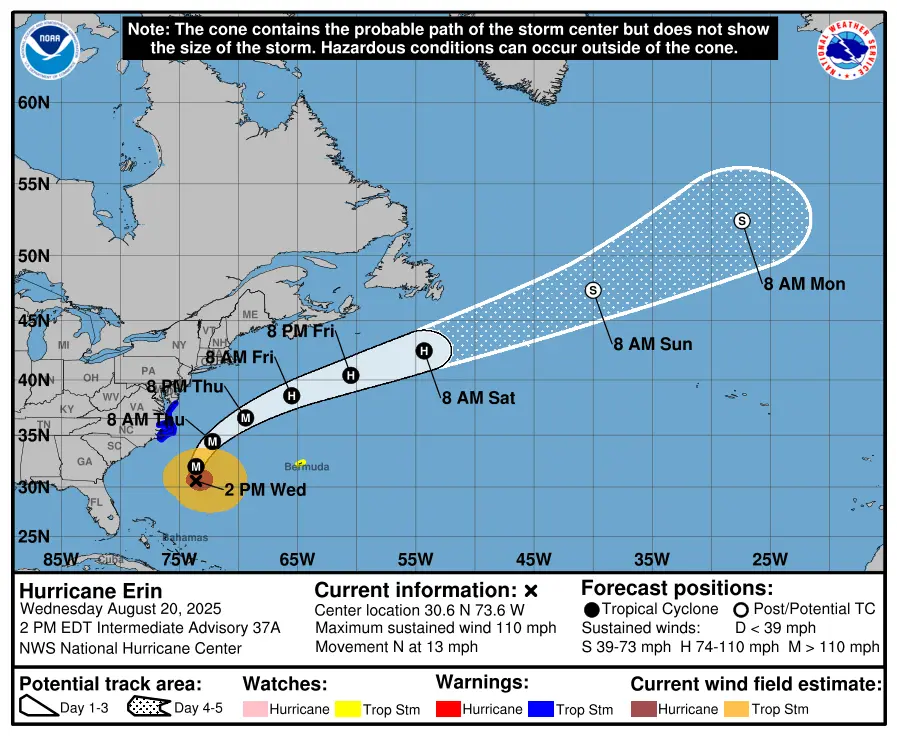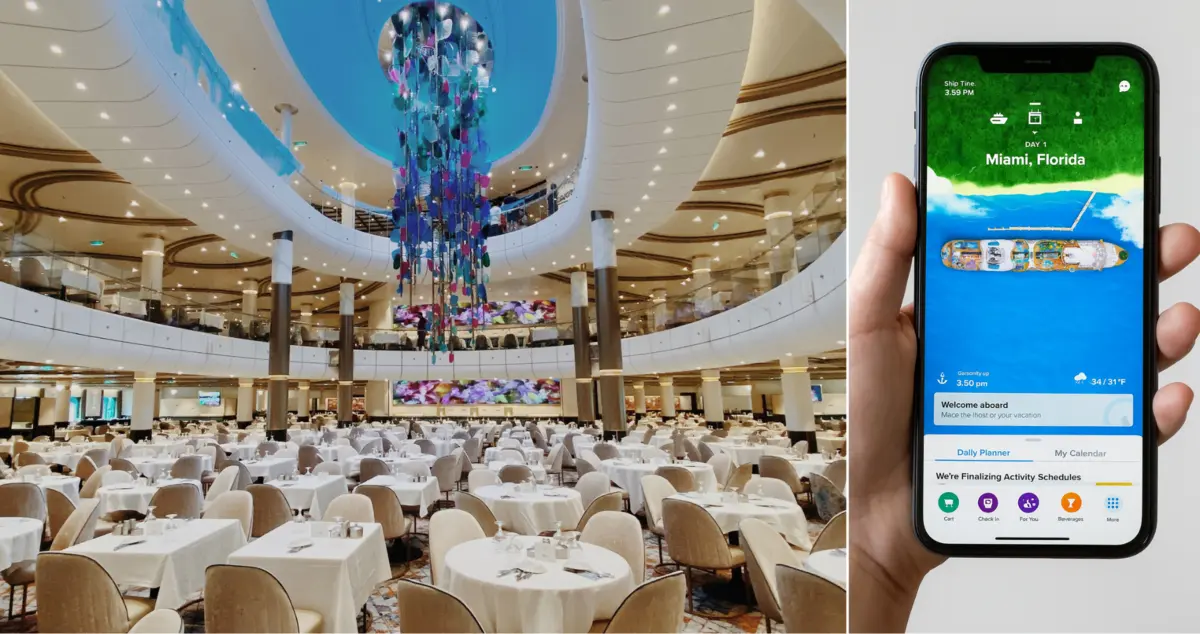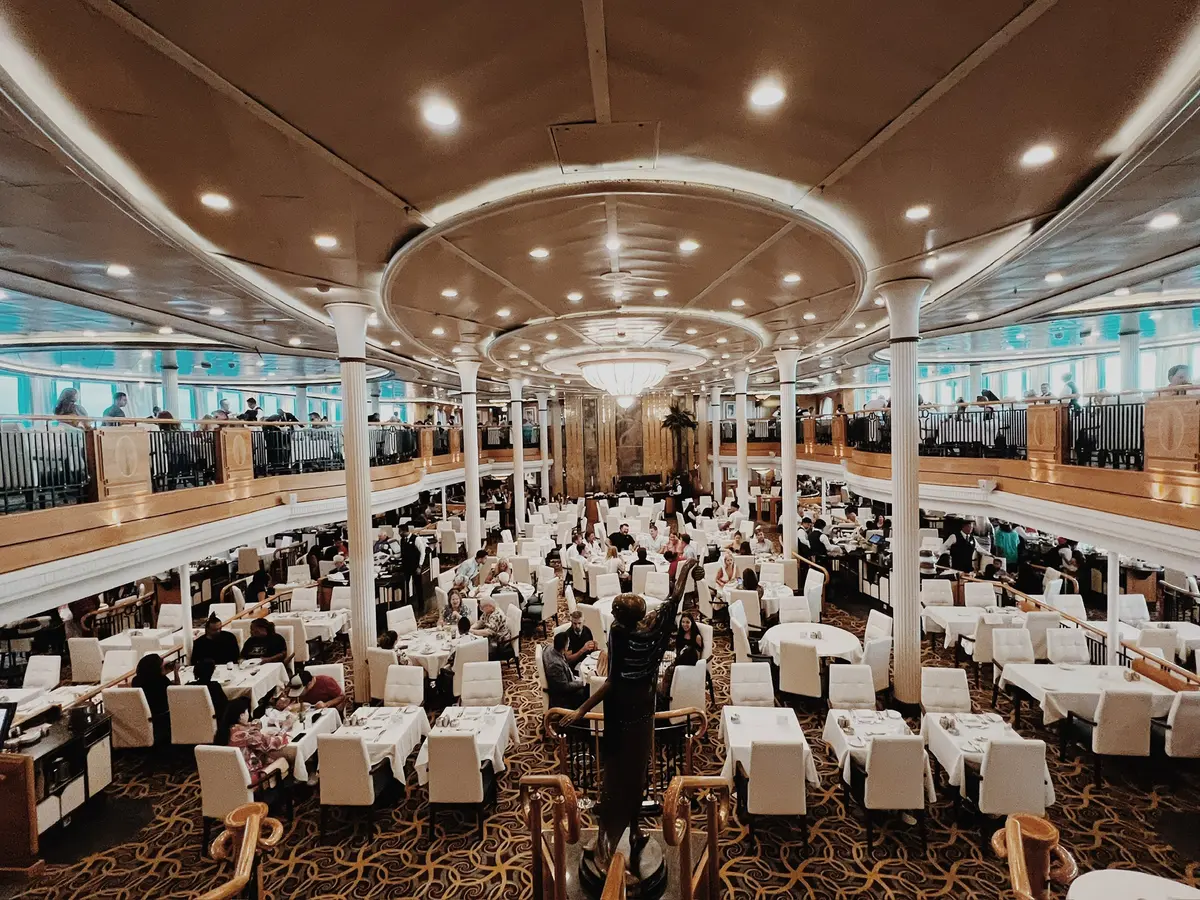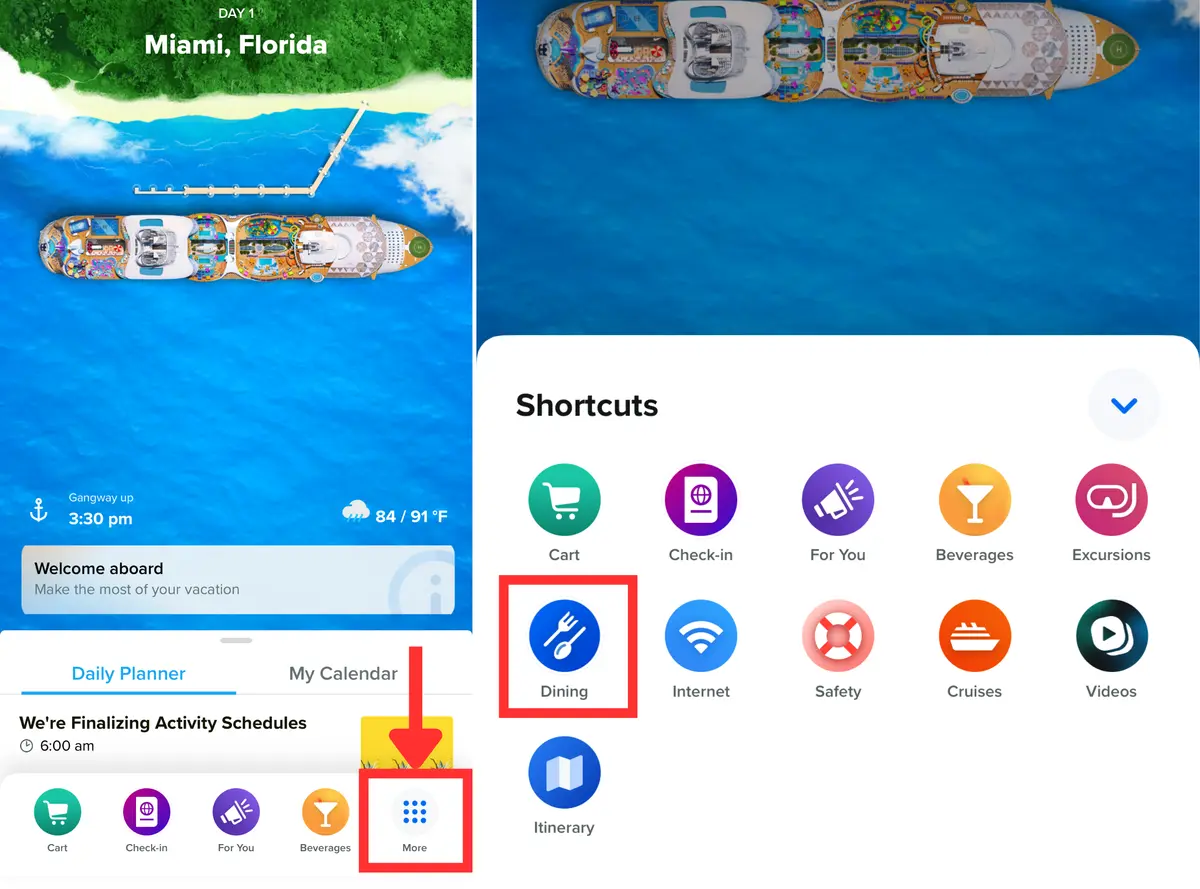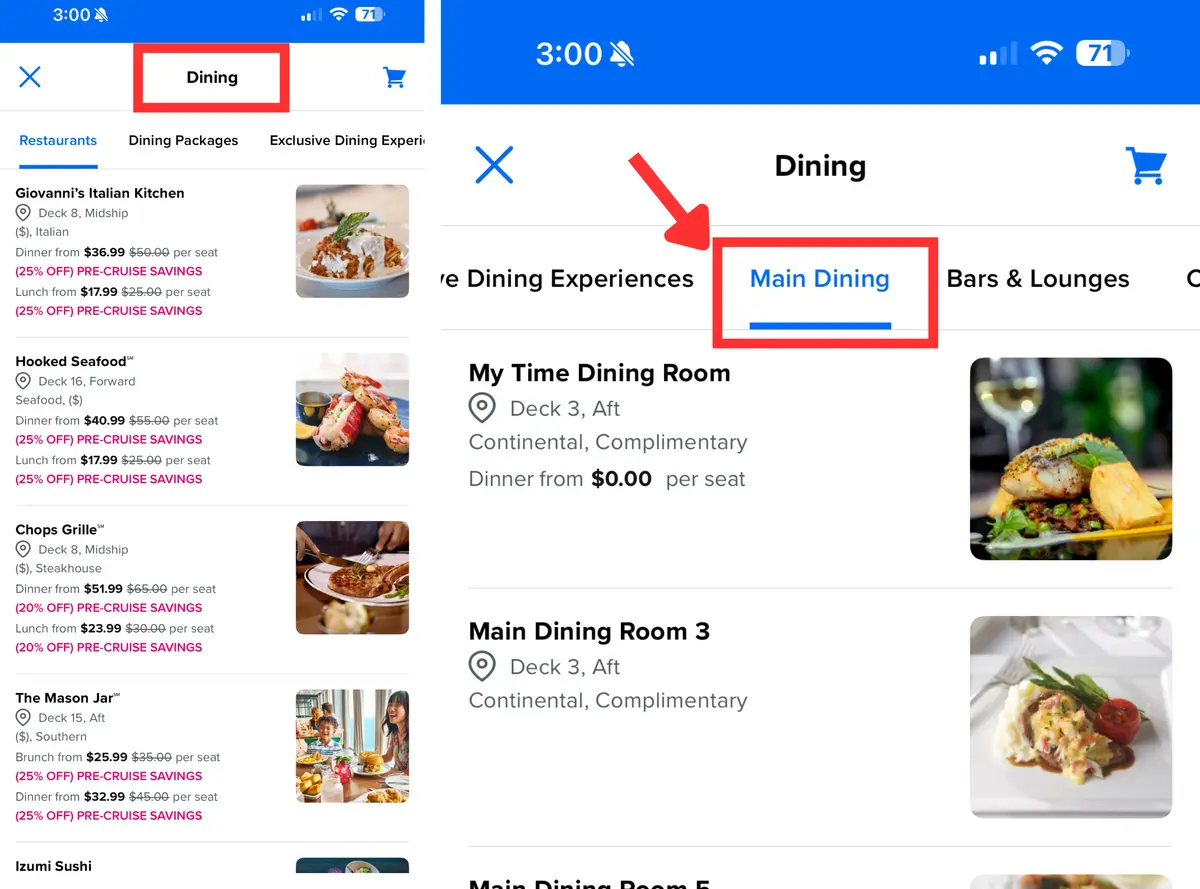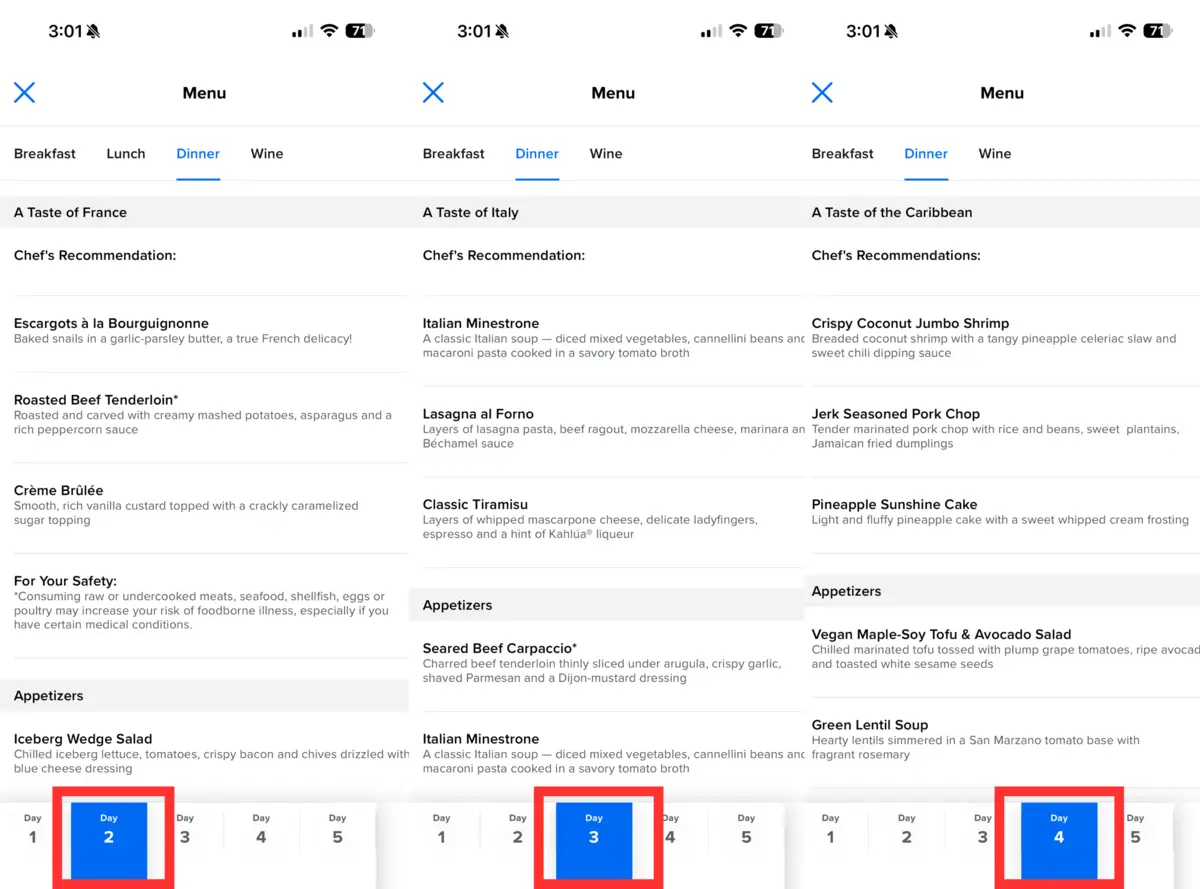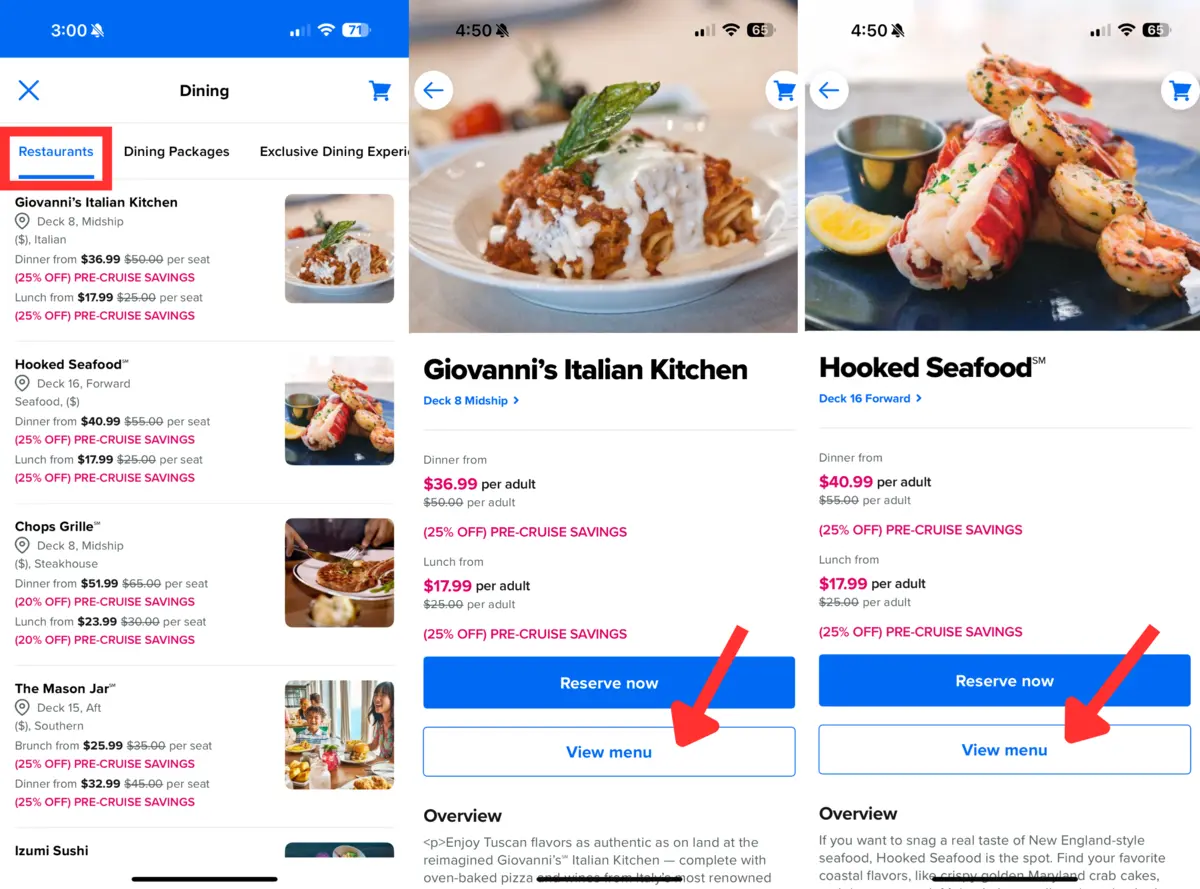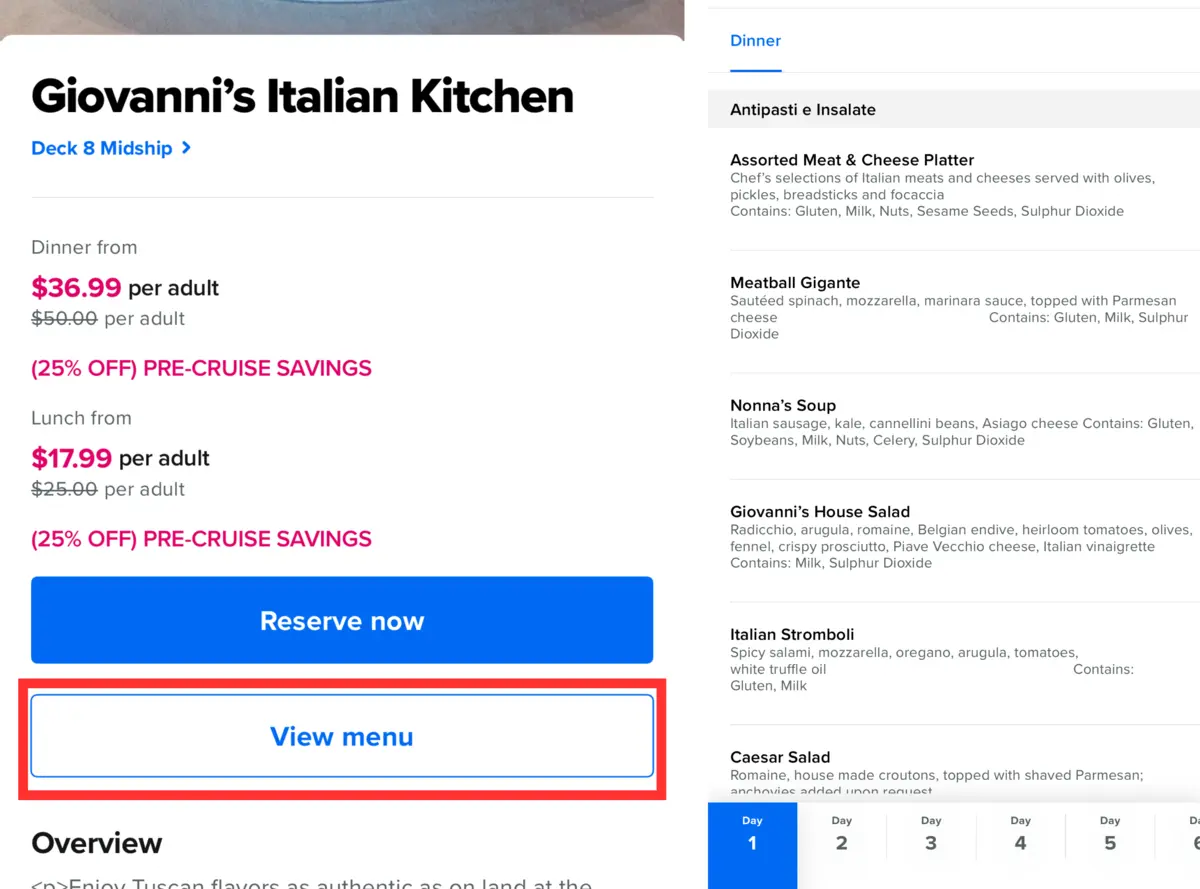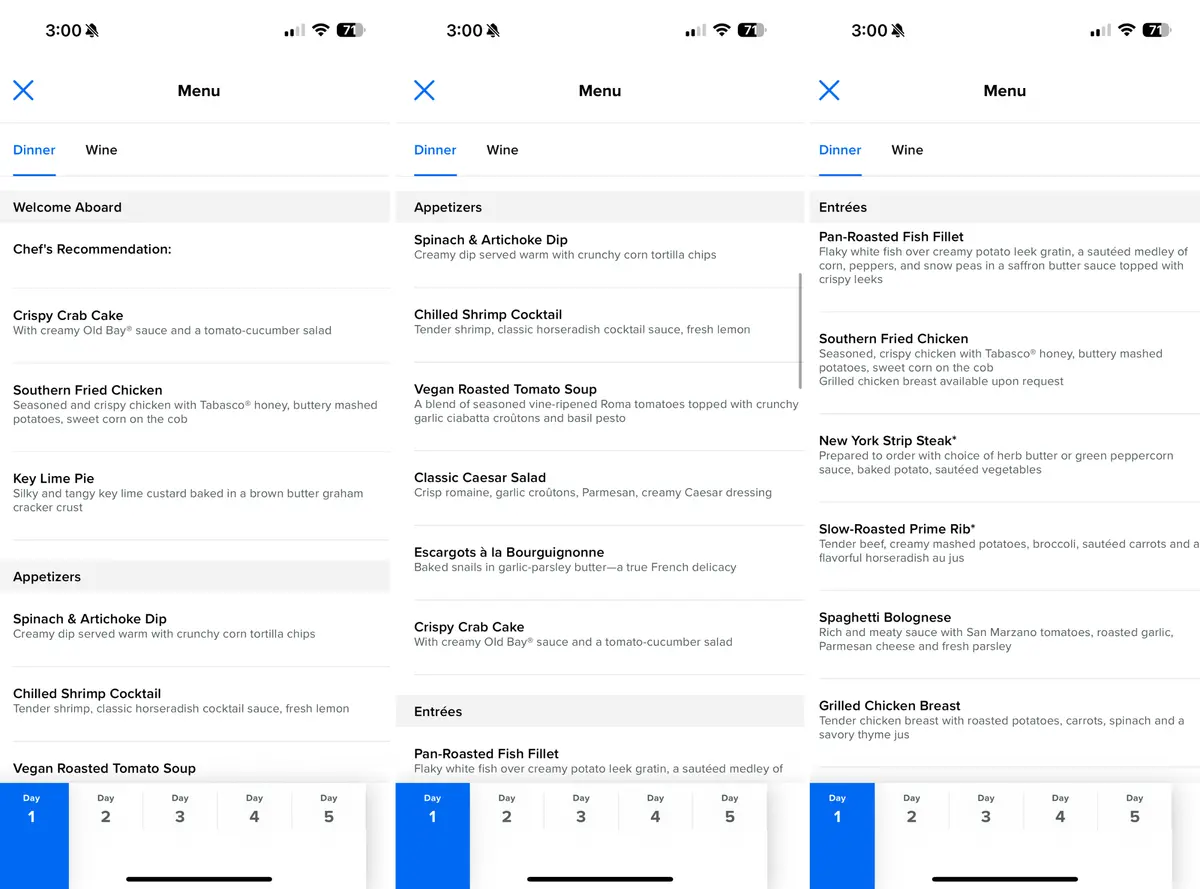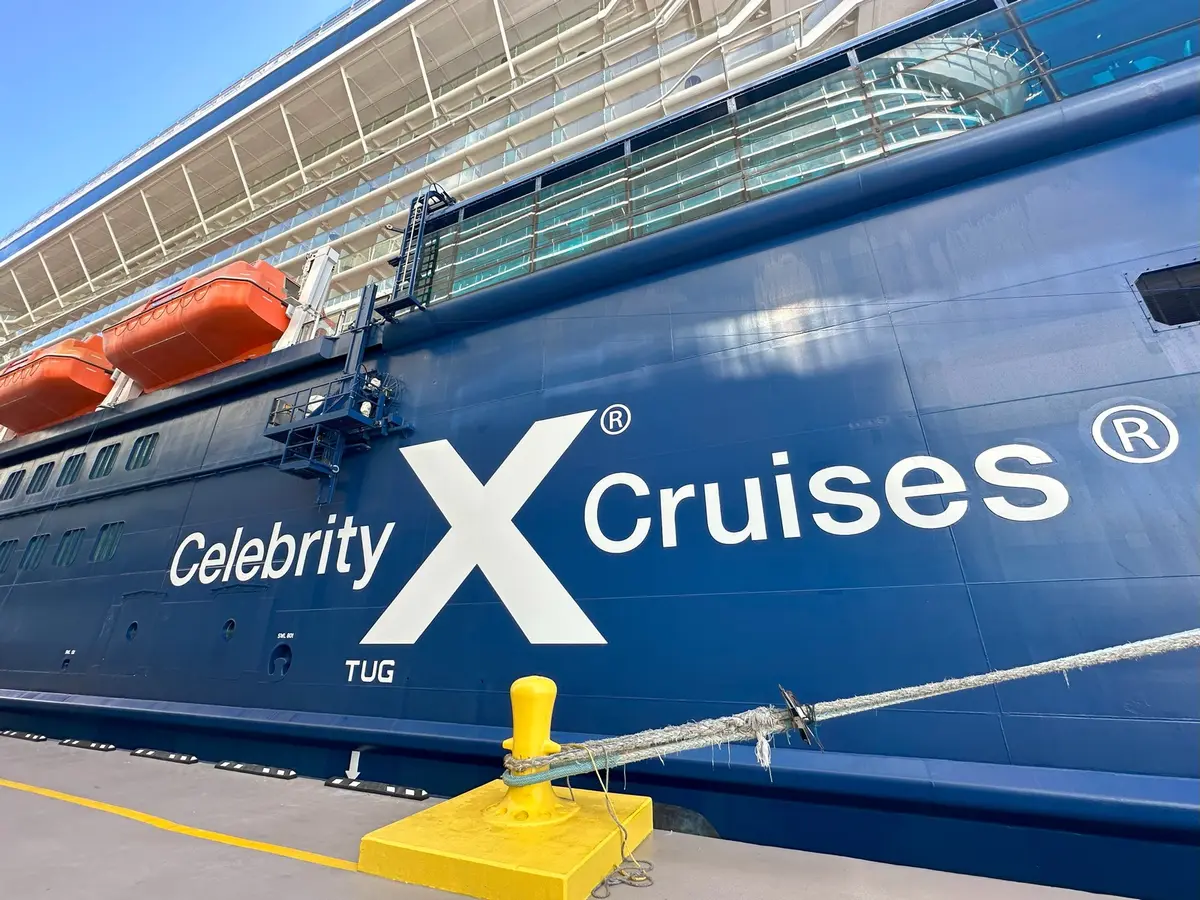I ate at the most expensive restaurant on Star of the Seas, and it's even better than the original
In:The Lincoln Park Supper Club is a six-course meal on Star of the Seas that pairs cocktails and live music, but is it worth $200 per person?

Themed after the Chicago of the 1930s and 1940s, this is Royal Caribbean's second supper club experience that follows up on the Empire Supper Club that was first added on Icon of the Seas.
When I tried the first supper club, I was skeptical if I'd enjoy it because it sounded like an expensive and long meal. Not only did I enjoy it, I went back for a second time.
With Lincoln Park Supper Club, I wanted to see how similar the experience was and if it felt like more of the same. As it turned out, I walked away liking this version so much more.
What to know before you book

Lincoln Park Supper Club is a totally different kind of experience from other specialty restaurants on Star of the Seas.
The meal takes about two and a half hours, and includes alcohol with the experience.
The listed price is $200 per person, however guests with the Unlimited Dining Package can dine here for $130.

There are no discounts for guests with the Deluxe Beverage Package or Crown and Anchor status.
Royal Caribbean has a formal dress code and it's enforced. Men must wear a jacket, and will be provided one if they don't have one.
It's a very small venue, with a maximum capacity of just 38 people per evening. Tables can accommodate two or four guests, and if you're dining alone there's a good chance you'll be seated with a stranger.

Groups containing more than four guests will need to be seated at separate tables.
Yes, kids can come, but Royal Caribbean says it's "designed for adult guests" and there's no difference in price for children.
It's also required that you show up on time. Doors open 10 minutes before your dining time and the experience starts up quickly.
Lincoln Park Supper Club review

Located on deck eight on Star of the Seas, you'll find the entrance to the Lincoln Park Supper Club near Central Park.
Guests wait in the elevator lobby near the entrance until a waiter comes to escort you inside. Very quickly you'll notice the elegance and differences from traditional specialty restaurants.
This is an intimate restaurant, and it feels like you're in a club considering how small the venue is.

You'll be given a flute of champagne the start, and then a menu gives you an overview of your evening.
There are three acts to the meal.
Each of the courses from the first act will be served to you, and then you can order one option from the second (entree) and third (dessert) acts.
Each course comes with a select cocktail, meant to pair perfectly with the food served.

Now let's talk substitutions. While the menu is fixed, there are alternatives for both food and drink available.
I don't eat shellfish or pork, and the restaurant had no problem serving me courses that either didn't include those foods or a completely different (yet visually similar) alternative.
They have some flexibility, but don't expect Sorrento's Pizza or something completely different from the menu offerings.

Similarly, if you prefer non-alcoholic cocktails, they can serve those instead.
The meal begins with a jazz trio, consisting of a piano player, bassist, and singer. Later in the show, a trumpeter joins in (spoiler alert).
Each course is paired with a song, such as Home Sweet Chicago, Maple Leaf Rag, or Quiet Whiskey.
The musical element is wonderful, and it's difficult not to tap your toe as you enjoy it.
Here's a list of all the food we were served to both myself and my dining partner. Neither of us are professional food reviewers, but we're from Connecticut, so that instantly gives us a certain level of esteem (that's a joke, let's move on).
Drink #1: Moet & Chandon Imperial Brut
You'll start the meal off with a flute of champagne and a toast. Classic and simple.
Starter #1: Amuse-bouche

There are two starters that technically aren't courses, but you'll enjoy them as a lovely start.
The first is inspired by a Chicago seafood restaurant that is served with caviar and edible gold flakes.
Starter #2: "Deep dish pizza" bread

My favorite of the two starters looks like bread, but it's essentially a deconstructed deep-dish pizza.
The bread is paired with truffle butter and pepperoni and sun-dried tomato spread. Combined together, and it's sort like a pizza in your mouth.
Appetizer #1: Kampachi

I really liked this option, as it has fish, cucumber, soy, and goat cheese. Creatively arranged, it felt like a shame to eat.
Drink #3: Hyde Park Martini

This cocktail is inspired by the Lake House Hotel, which was Chicago's first fine dining hotel that opened in 1835.
I'm not a huge martini fan, but it had a good mix of being a bit dry and invoking a good flavor.
Appetizer #2: Beetroot

If you're a fan of beets, this is the appetizer for you.
I found each of the beet options here to be less tart than I expected, and I actually ate it all. We both enjoyed it was creatively made and still tasted good.
Drink #4: Botanist's Elixir

Another homage to Chicago's past, this cocktail is a tribute to Chicago's first supper club, the Winter Garden Cabaret.
I enjoyed this drink, and it was my favorite up until this point.
Appetizer #3: Steak Tartare

Royal Caribbean came up with a very creative way to shake up a traditional steak tartare.
It's served vertically, and I had to politely take bites rather than gobble up the whole thing in one bite. Soft, tender, and great flavor.
Drink #5: LP Old Fashioned

I wanted to love this drink more, but I'm not a fan of bitters.
Old fashioned's are back in style, so I recognize this is a "me thing" and I'm sure you'll enjoy this more than I did.
Appetizer #4: Crab Ravioli

Since I don't eat shellfish, I was served a substitute of cheese in my ravioli.
Nonetheless, we both really liked this ravioli. It looked and almost tasted more like a soup, but it had a very rich flavor.
Drink: Lakeshore Fizz

I really liked this drink a lot, as it had good flavor and kick to it.
This cocktail was inspired by another Chicago supper club, the Chez Paree, which was created in 1938. It was best known for being glamorous as well as being a notorious mob hangout.
Palate cleanser

Before the main course, we were served a sorbet that came with dry ice and I was like a little kid as soon as they brought it out.
Main course: Prime Rib

There are four options for your entree: walleye (fish), lamb, wagyu prime rib, or cauliflower.
Each option is a tribute to The Pump Room, a popular hangout spot for celebrities in Chicago.

My dining partner picked the prime rib, and I sampled a bite of it because it looked so good.
It's accompanied by potatoes and onion, and I would have ordered it had I not wanted some variety in our review.
It's paired with the Southside cocktail.
Main course: Cauliflower steak

I've had plenty of cauliflower steaks on Royal Caribbean, so I was curious to see how this stacked up.
As the vegetarian option, it comes out looking like a menagerie of cauliflower. Like everything on the menu, the presentation is truly impressive.
I prefer to pair a cauliflower steak with a protein to help balance it all, but I was impressed by the taste and texture of it.
The accompanied cocktail for this was the Chicago Cocktail (seriously, that's the name).
Dessert: Palmer House Brownie

There are two desserts on the menu, so we decided to share.
Evidently the brownie was invented at the Palmer House in Chicago, and it tasted decadent and delightful. Plus, it has a scoop of vanilla gelato.
I was hesitant to share the bite I promised.
The cocktail is Gold Coast.
Dessert: Grasshopper Pie

A weird name, but this is a peppermint mousse.
Personally, I hate mint and mousse, but my dining partner enjoyed it a lot.
We both really liked the Brandy Alexander cocktail that came with it. I even got one for myself, because I enjoyed it so much.
It tasted like a White Russian cocktail, and was quite smooth. My favorite of all the cocktails.
Surprise dessert

If we didn't have enough to eat by now, there was one more dessert served.
Chocolate bites were brought out on a piano filled with dry ice, and each chocolate bite had a different filling.
Better than Empire Supper Club

I walked away from the Lincoln Park Supper Club with one important takeaway: I liked this even more than the version on Icon of the Seas.
I thought the music was even better, as I think the addition of the trumpeter mixed things up. Plus, I greatly preferred the food overall at Lincoln Park.
While the meal did take almost three hours, I never once glanced at my phone to see what time it was. The pacing is perfect, and you're never sitting there wondering when the next thing will happen.
The disappointment comes in that it seems nearly impossible to actually finish every cocktail they serve. The pacing is quick, and these are full cocktails. Many drinks went back half consumed.
Is the Lincoln Park Supper Club worth the cost?

At $200 per person, this is a very expensive meal, but I think it's absolutely worth paying if you love cocktails, special foods, and want a lovely evening out.
You can make the argument that the amount of cocktails alone justify the cost, given that you can expect to pay between $10-14 for each one at a bar around the ship.
If you're smart and a little lucky, you can pre-book it online and get a lower price. For my Star of the Seas cruise in November, the price is discounted to $179.99 per person.
Then there's the food, which is truly nothing like you'll find anywhere else on Star of the Seas.
Given that you're getting drinks, food, and live entertainment in one, the Lincoln Park Supper Club is the ultimate date night on Star of the Seas.

It's not meant to be like Chops Grille, where you dine there multiple times. This is a special restaurant for a special occasion or evening out.
Moreover, the attention to detail makes it feel like something totally different from a specialty restaurant. It's on another level up from what you may have experienced in other venues onboard.
If you're a foodie, want to do something different or special, and enjoy cocktails, Lincoln Park Supper Club is a must-try.

